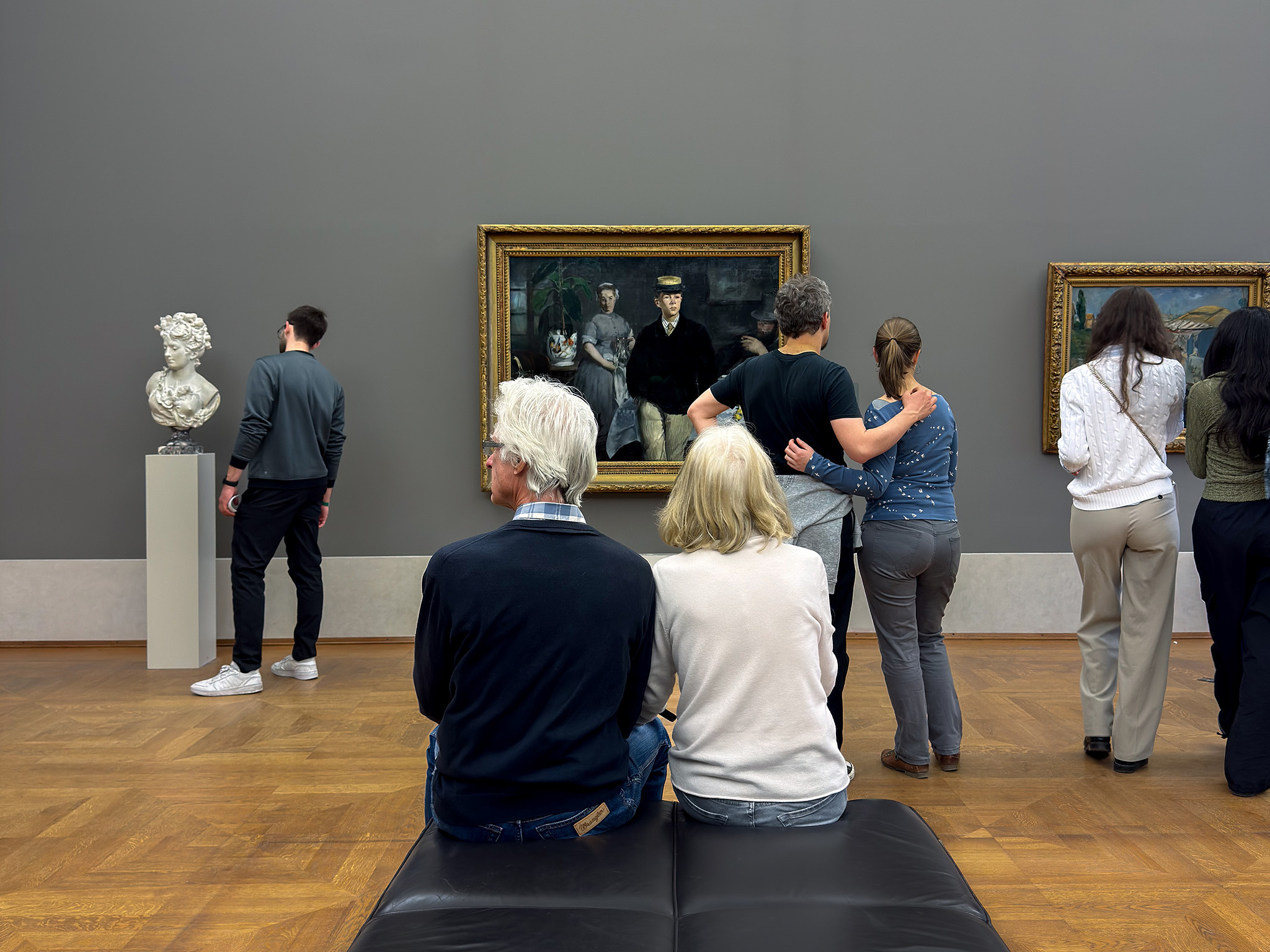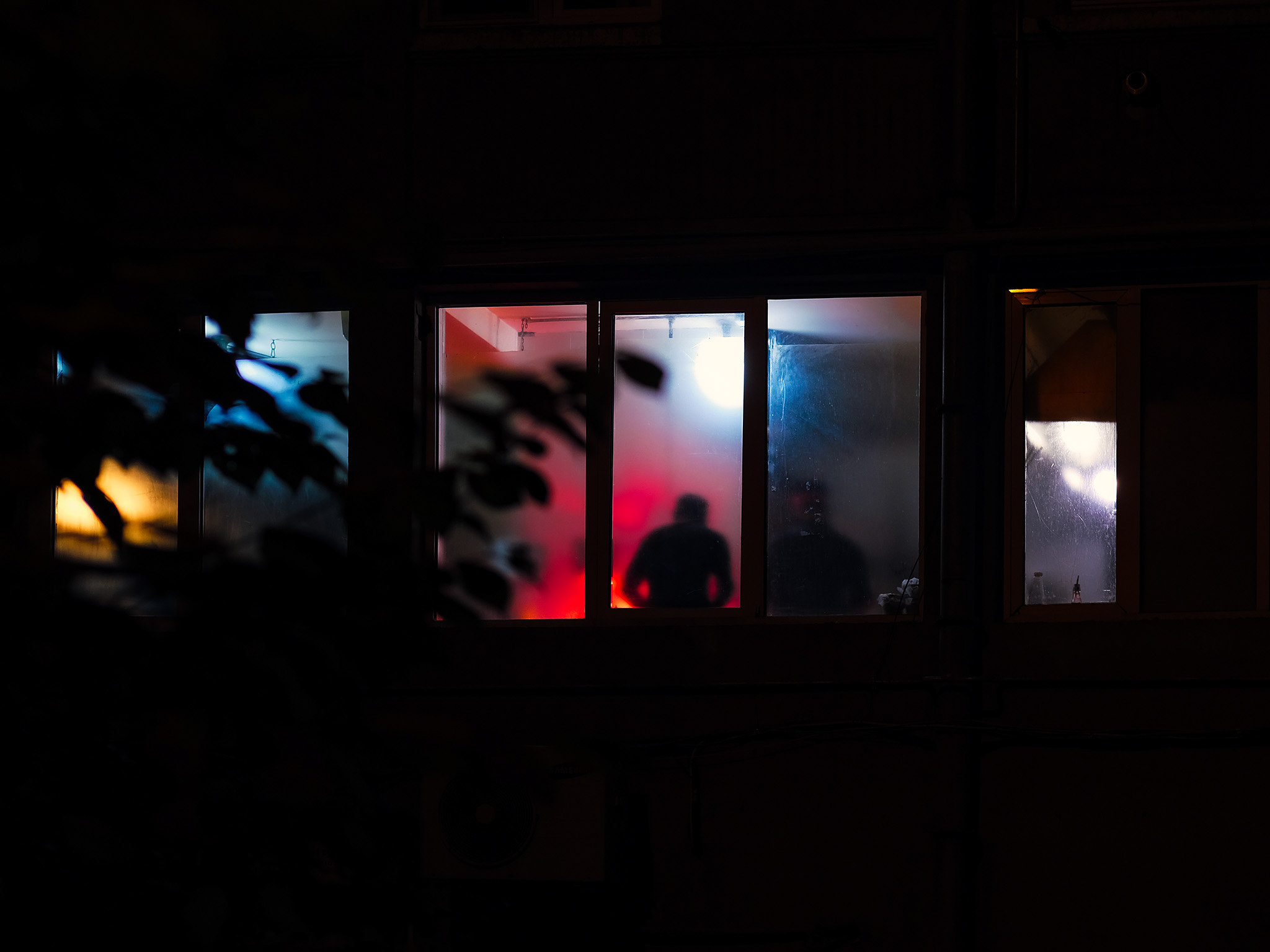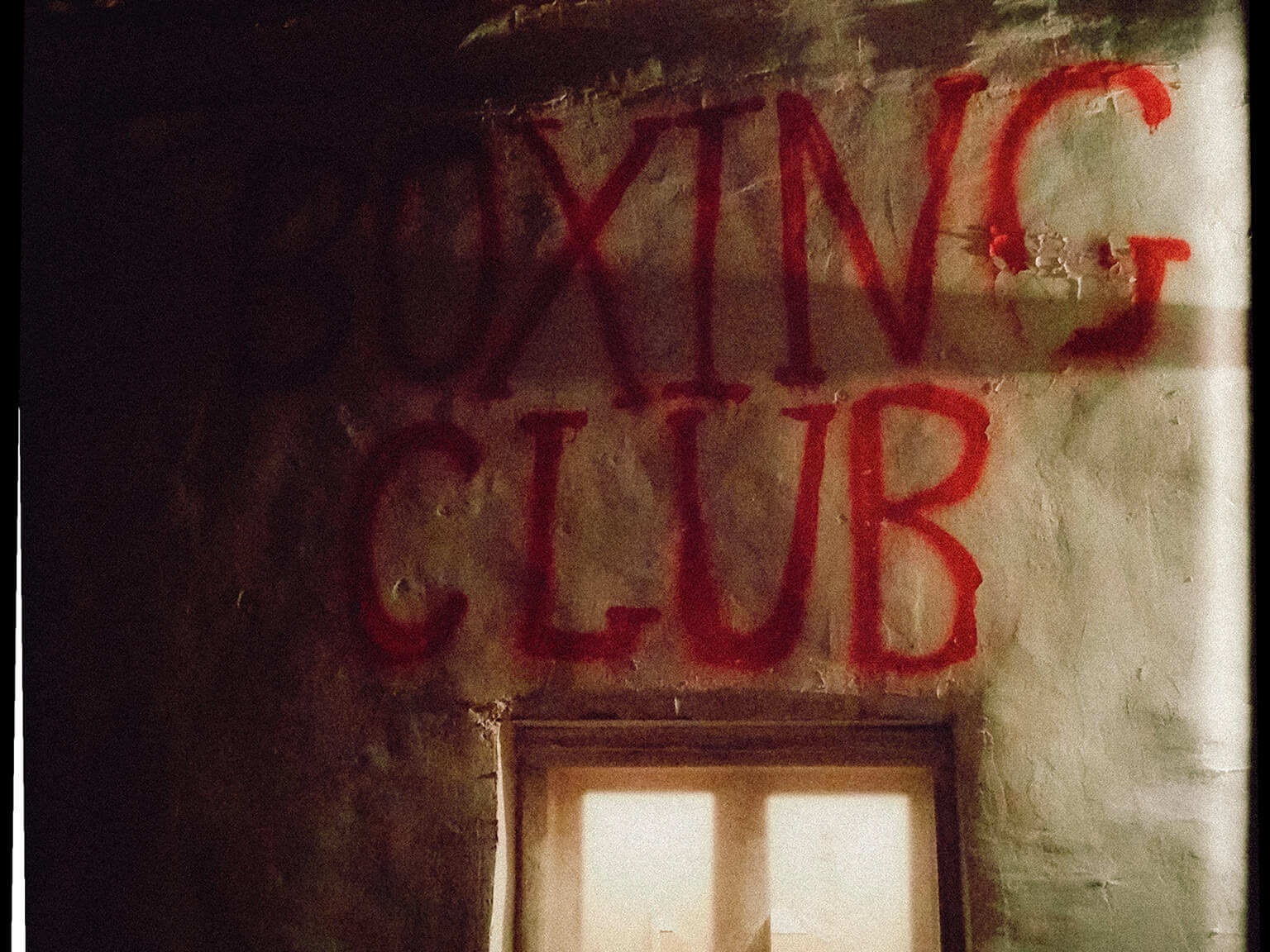In 2014, I returned to Krasnoe, a small village in Georgia where the Armenian community has deep roots. Life there moves slowly, and stepping into my great-grandfather’s house felt like stepping into another time - a place where the past lingers quietly in every corner.
The house in Krasnoe has always been special to our family. In Soviet times, my father, Vova, used to skip school, cross the border from Armenia into Georgia, and somehow make it to Krasnoe without his mother noticing. By evening, my great-grandmother Lyuba would call my grandmother to let her know: "Susan, Vova is here, don't worry...". For my dad, her house was more than just a refuge; it was his safe place.
Great-grandma Lyuba kept the house running, always by the stone stove that hasn’t been used since she passed away in 1999. The house itself has never been finished, but it’s been a summer gathering spot for decades.
I remember finding old photos on his bookshelf - a picture of my grandmother with my dad as a child, and my parents’ wedding photo.
Now the house is mostly empty, used only occasionally. But even without people, it feels alive with the memories.
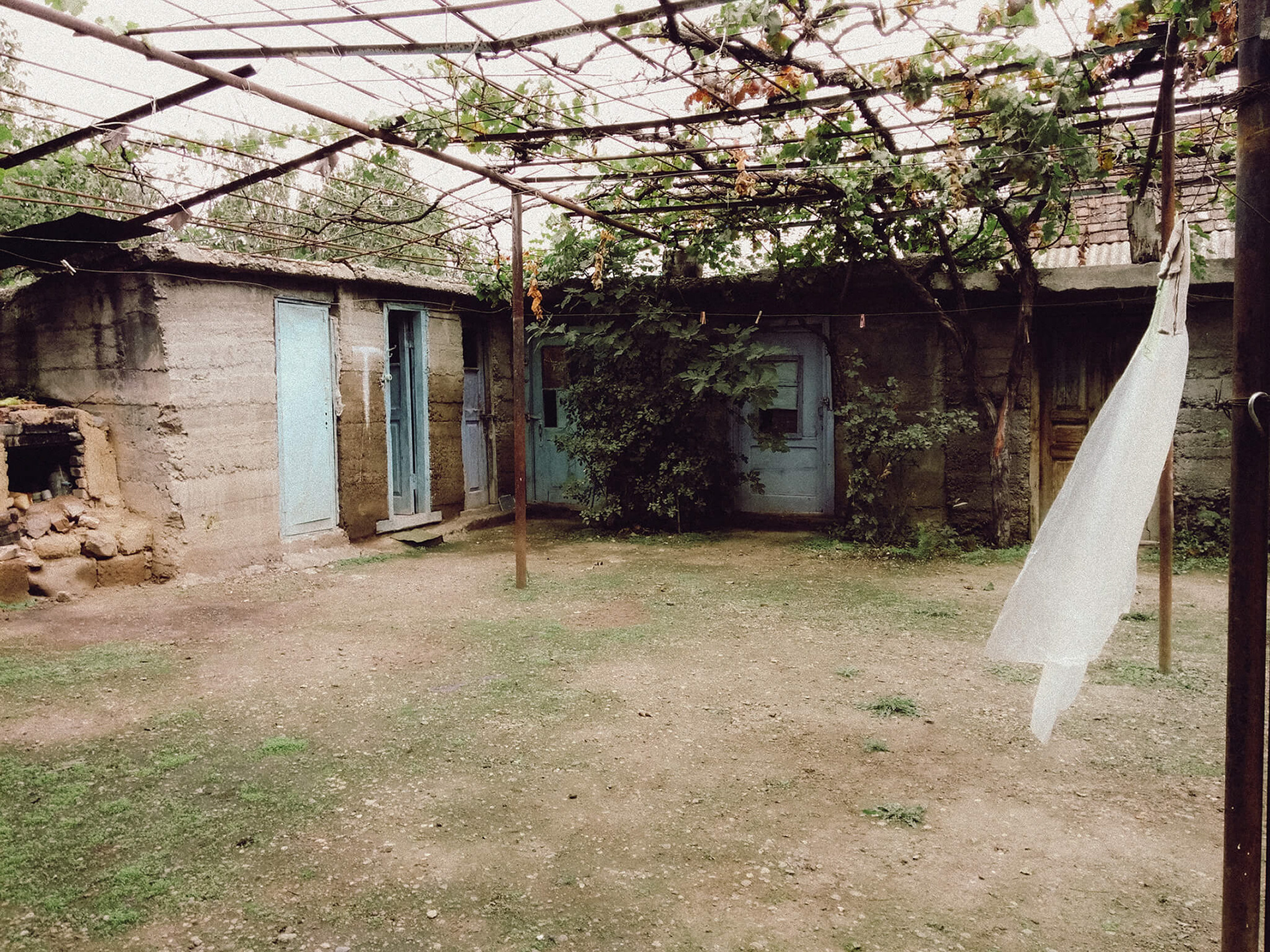
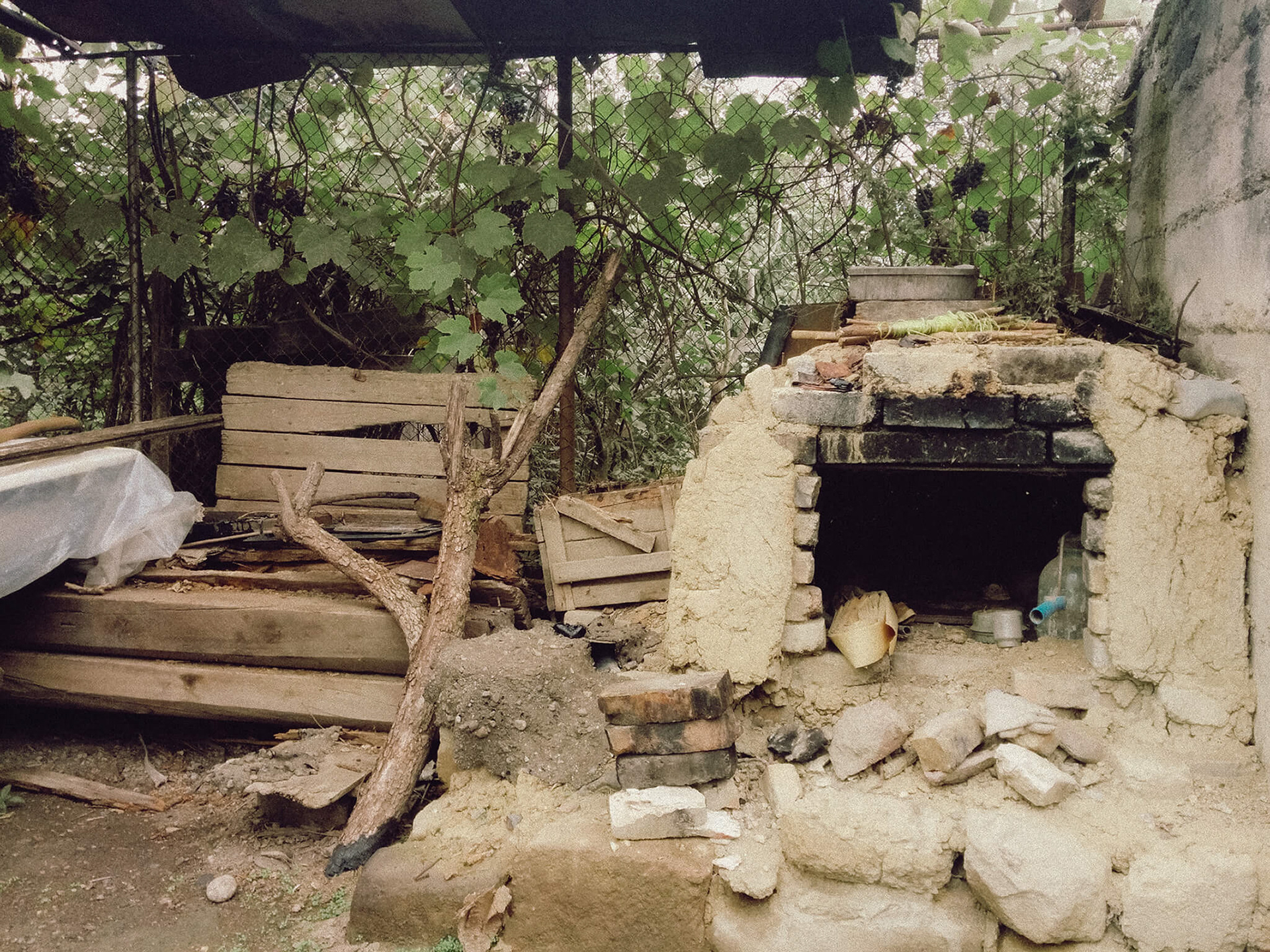
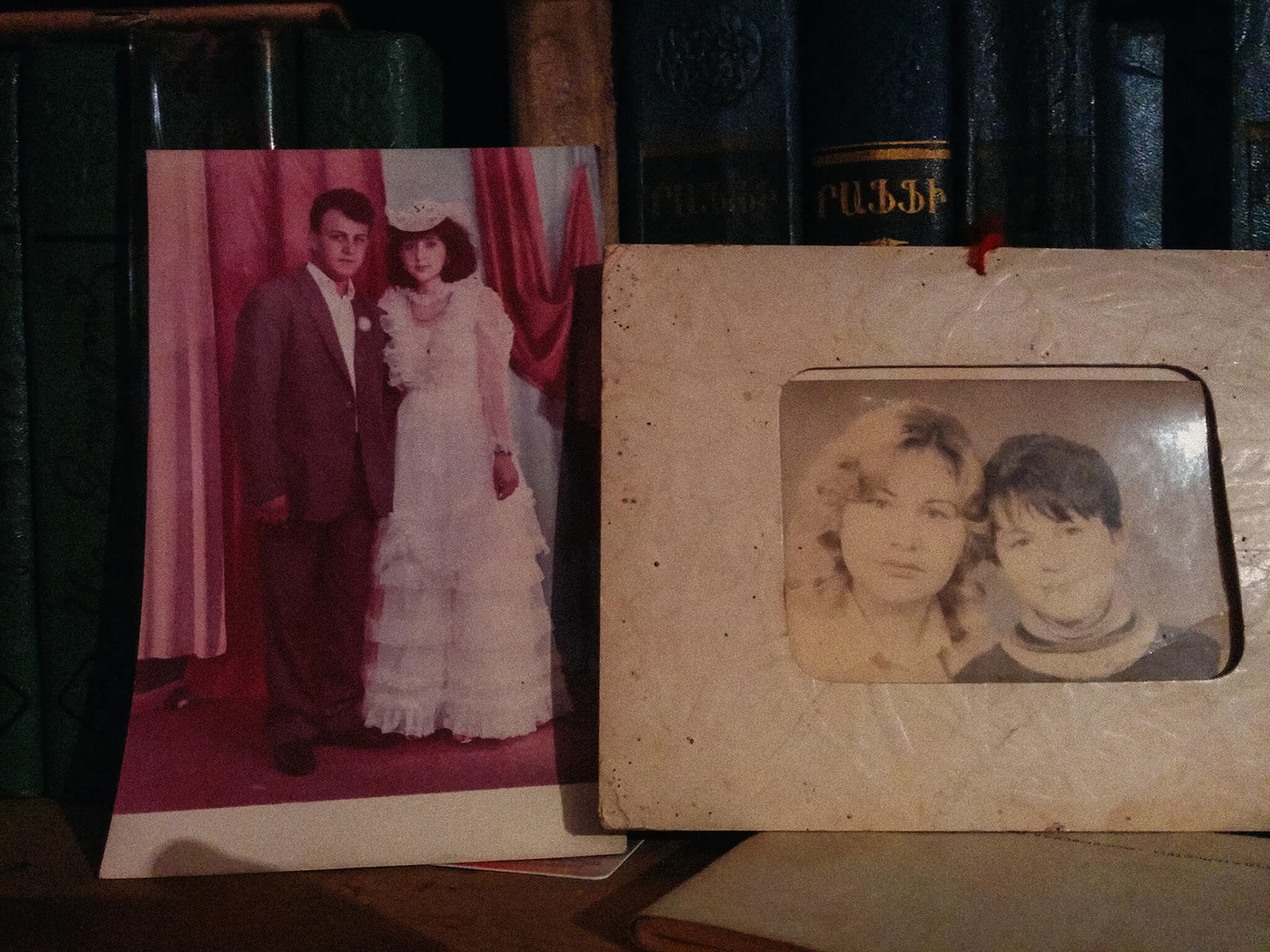
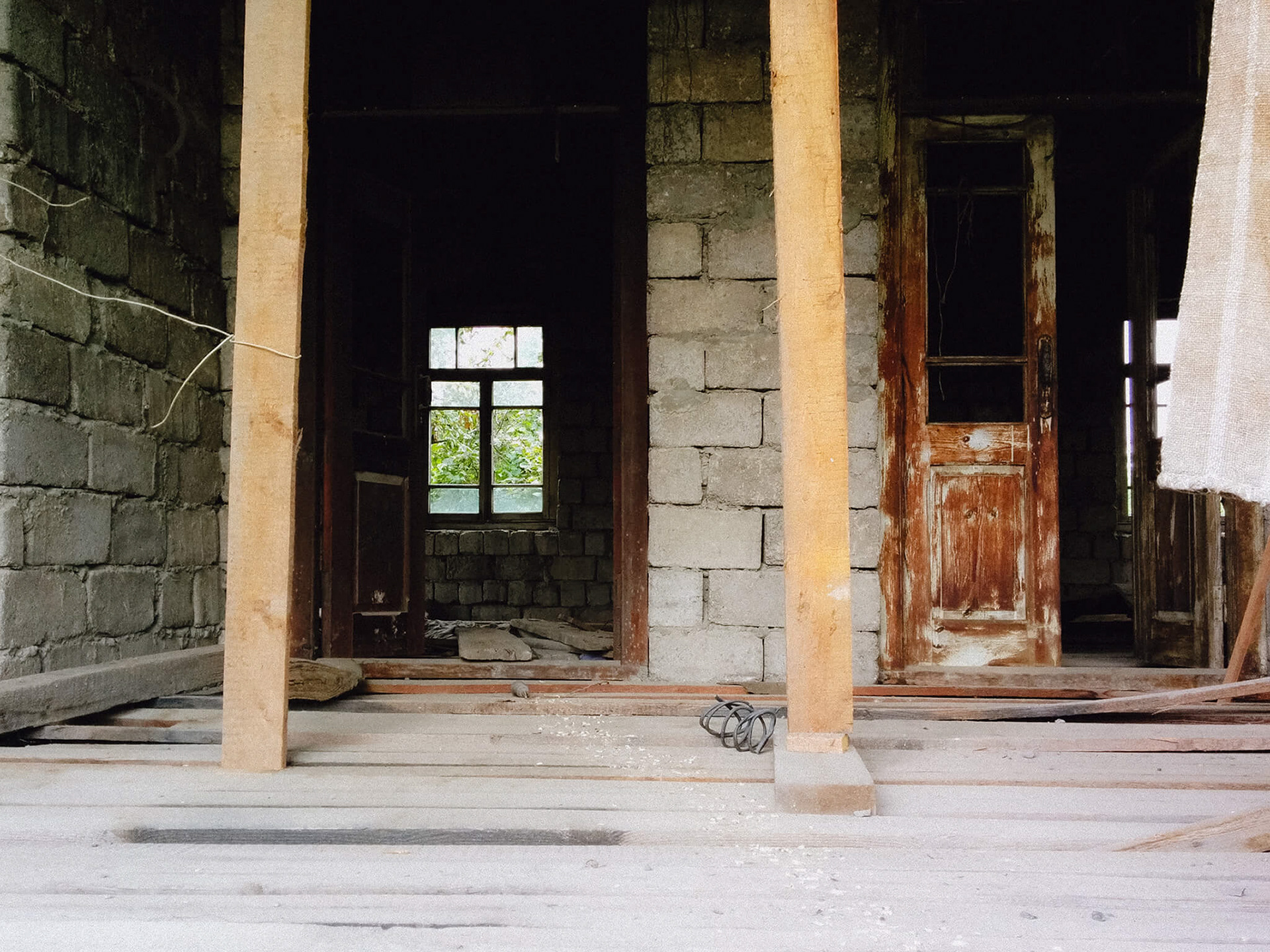
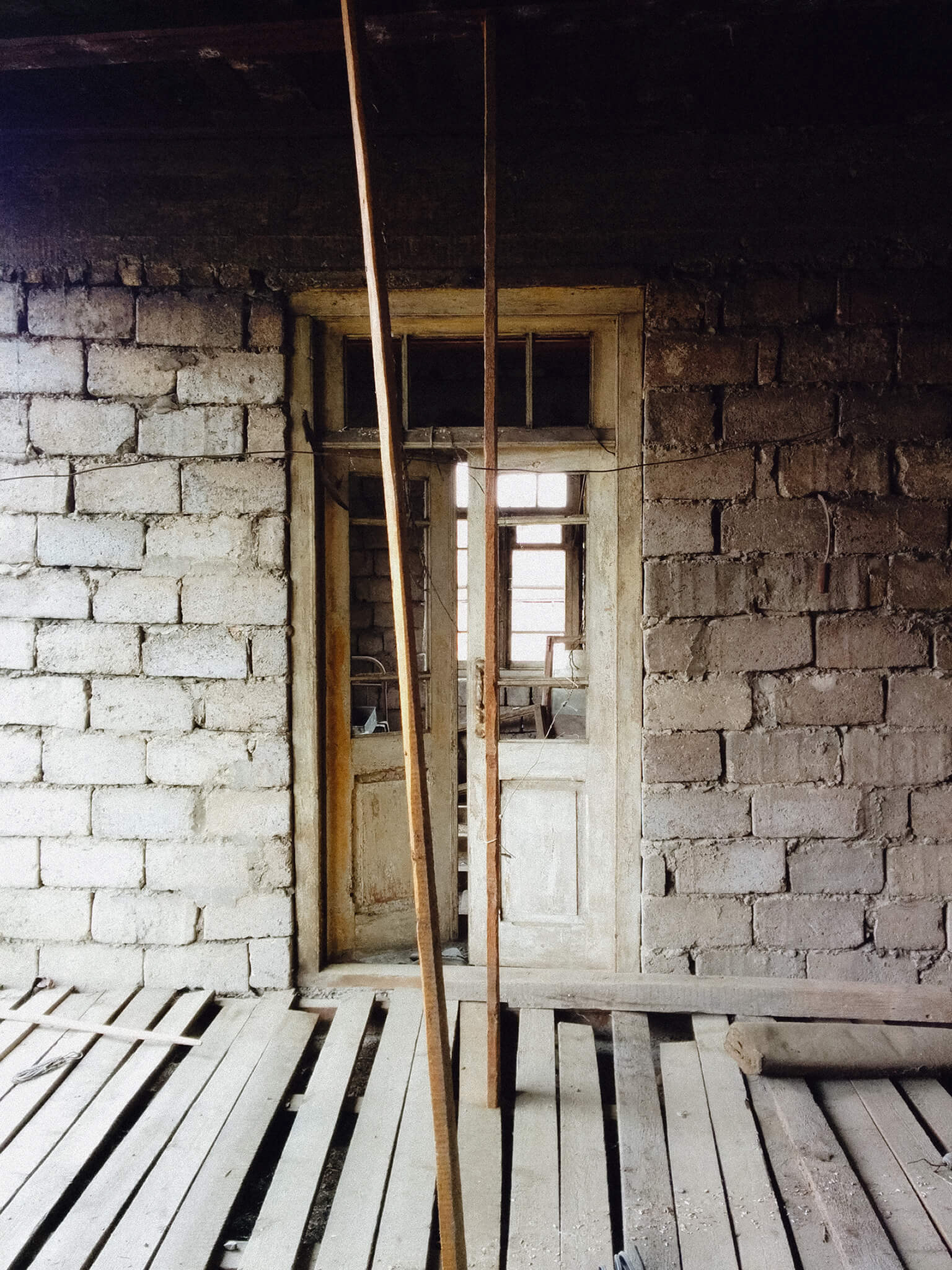
One Year Later: Honoring Great-Grandfather Vaghinak's Legacy in Krasnoe
My great-grandfather Vaghinak lived a long and storied life. He raised six children and, as the years went by, had the joy of meeting his great-great-grandson. For much of his life, he worked for the USSR railway, ensuring the trains kept running even during World War II. In his younger years, he was a strict, old-fashioned patriarch who valued discipline deeply, but as time passed, he displayed a gentle warmth toward his grandchildren and great-great-grandchildren. He passed away in 2013, and the following year, our family gathered in Krasnoe to commemorate the first anniversary of his passing.
Organizing the remembrance in Krasnoe
Our yard, wrapped in grapevines, usually offers shade from the sun, their leaves filtering the light. But on this day, the clouds loomed heavy. With rain on the horizon, we decided to stretch a canopy over the yard, just in case.
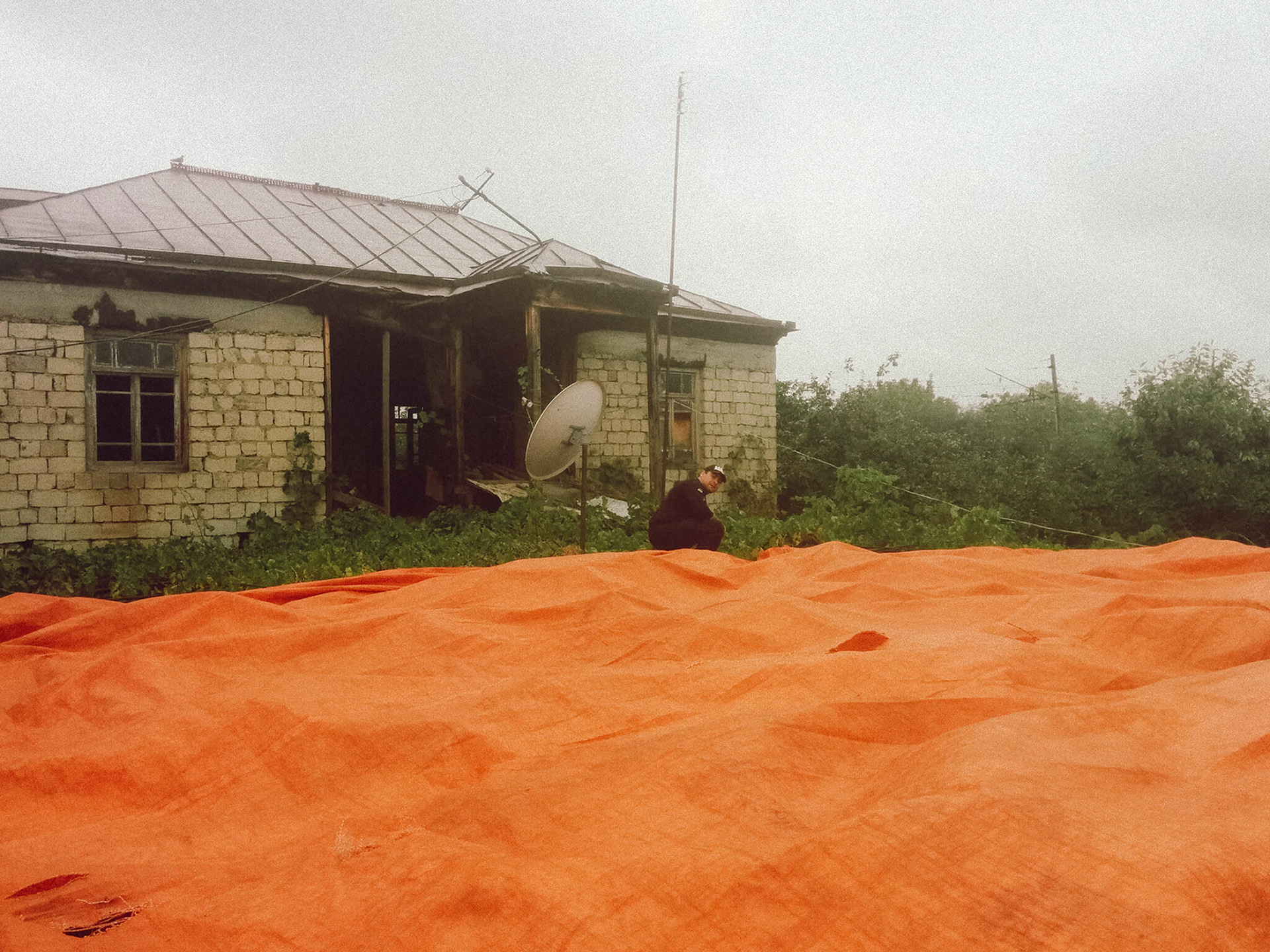
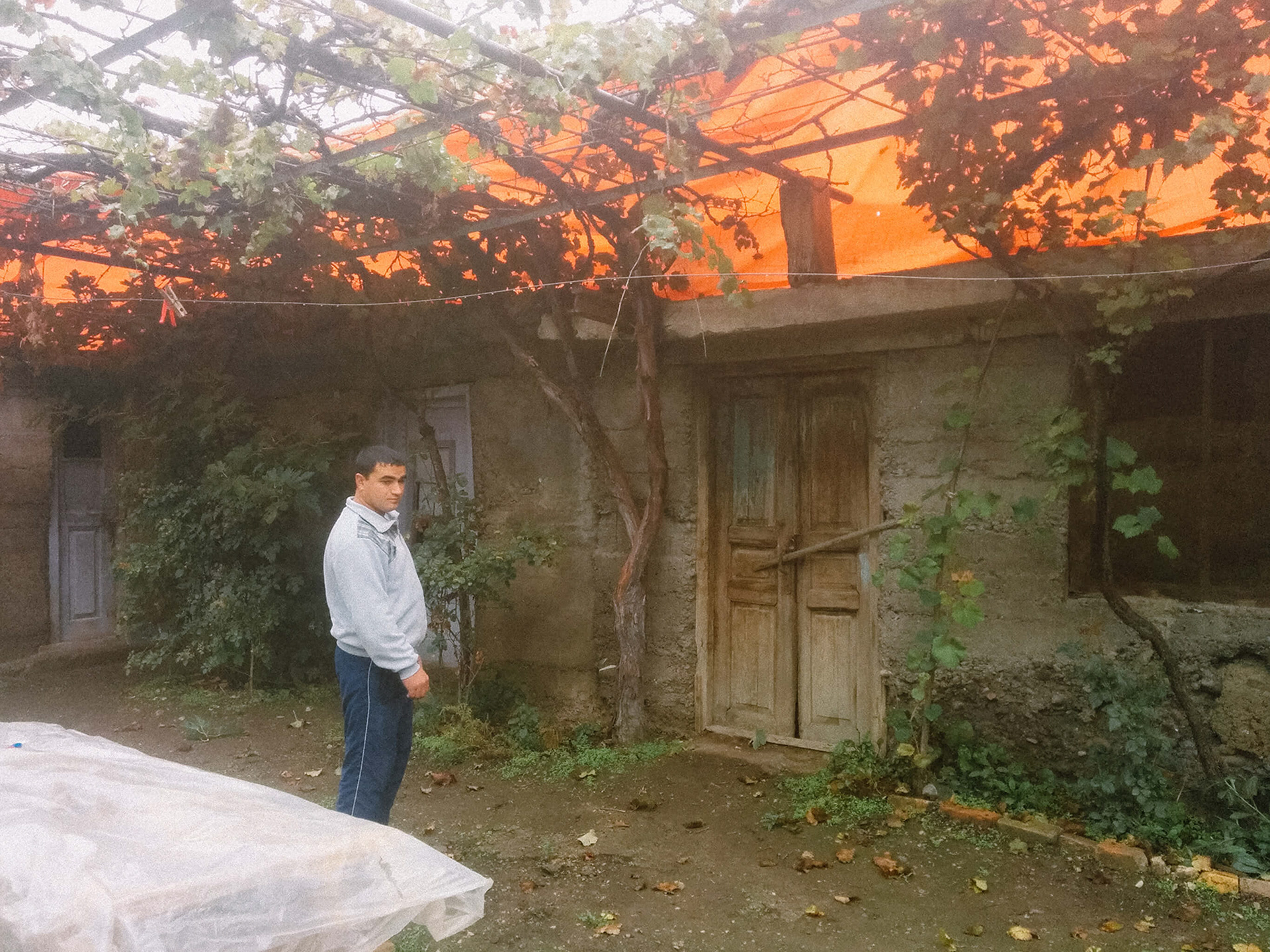
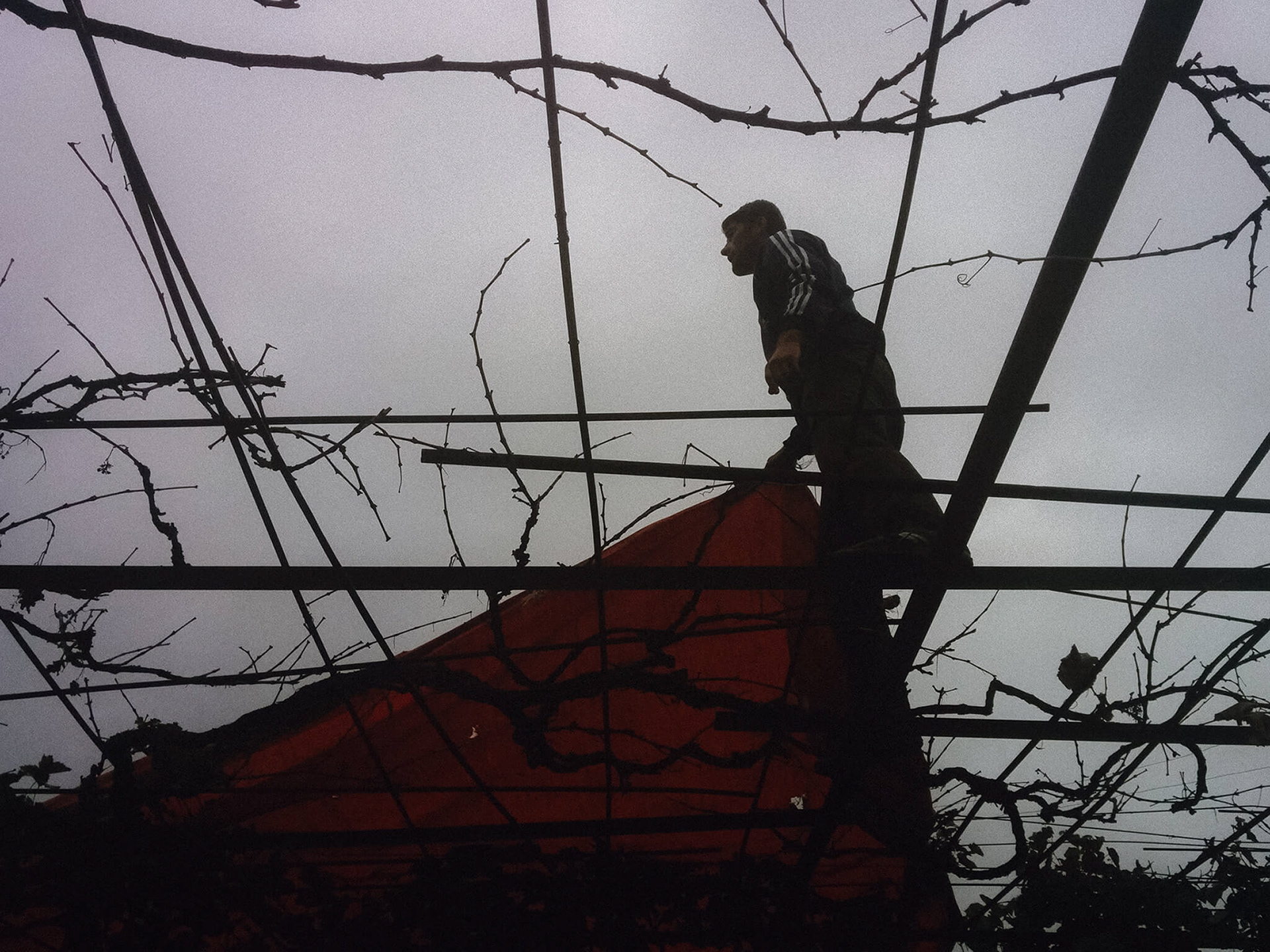
A day of reflection and respect
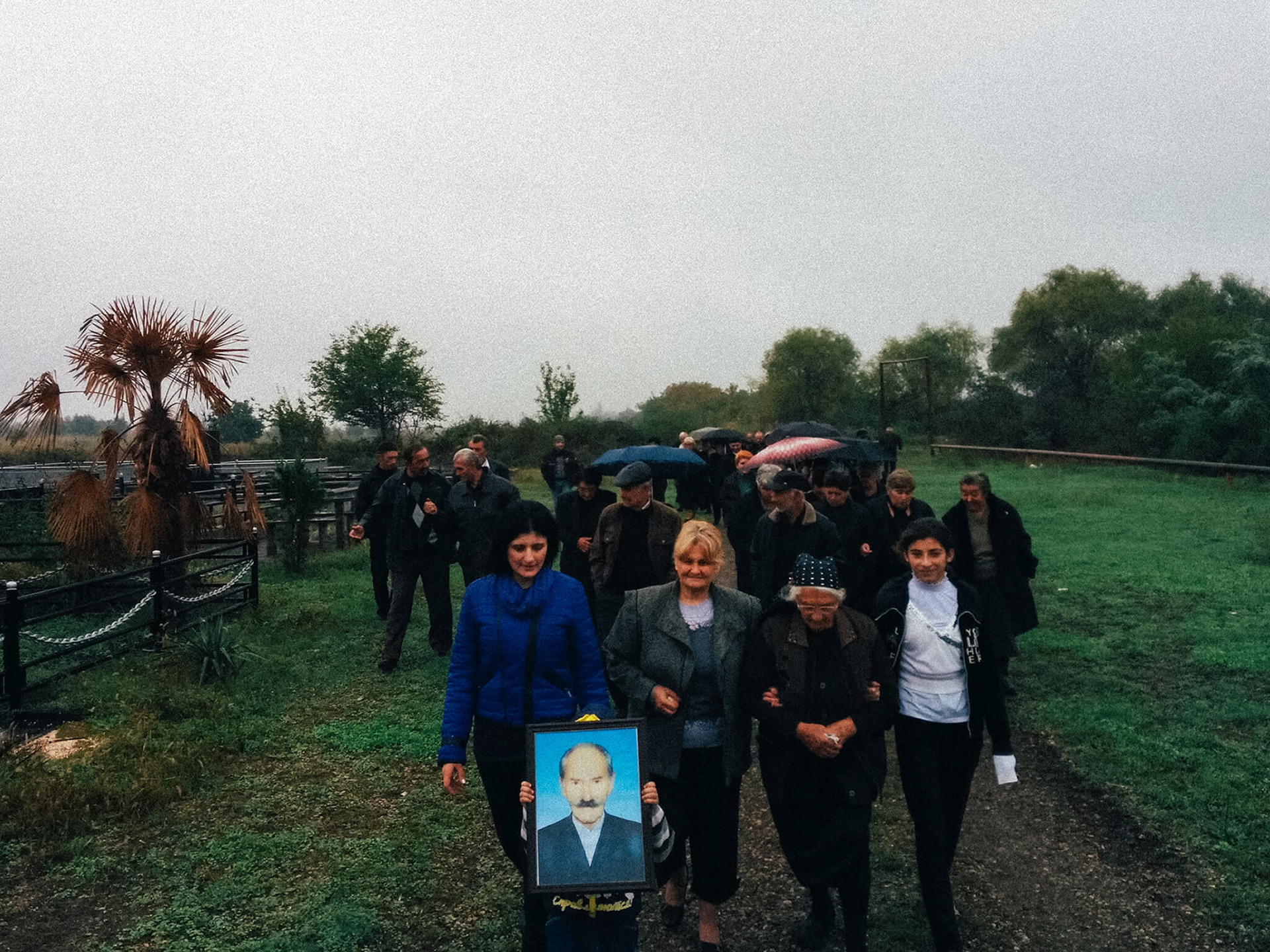
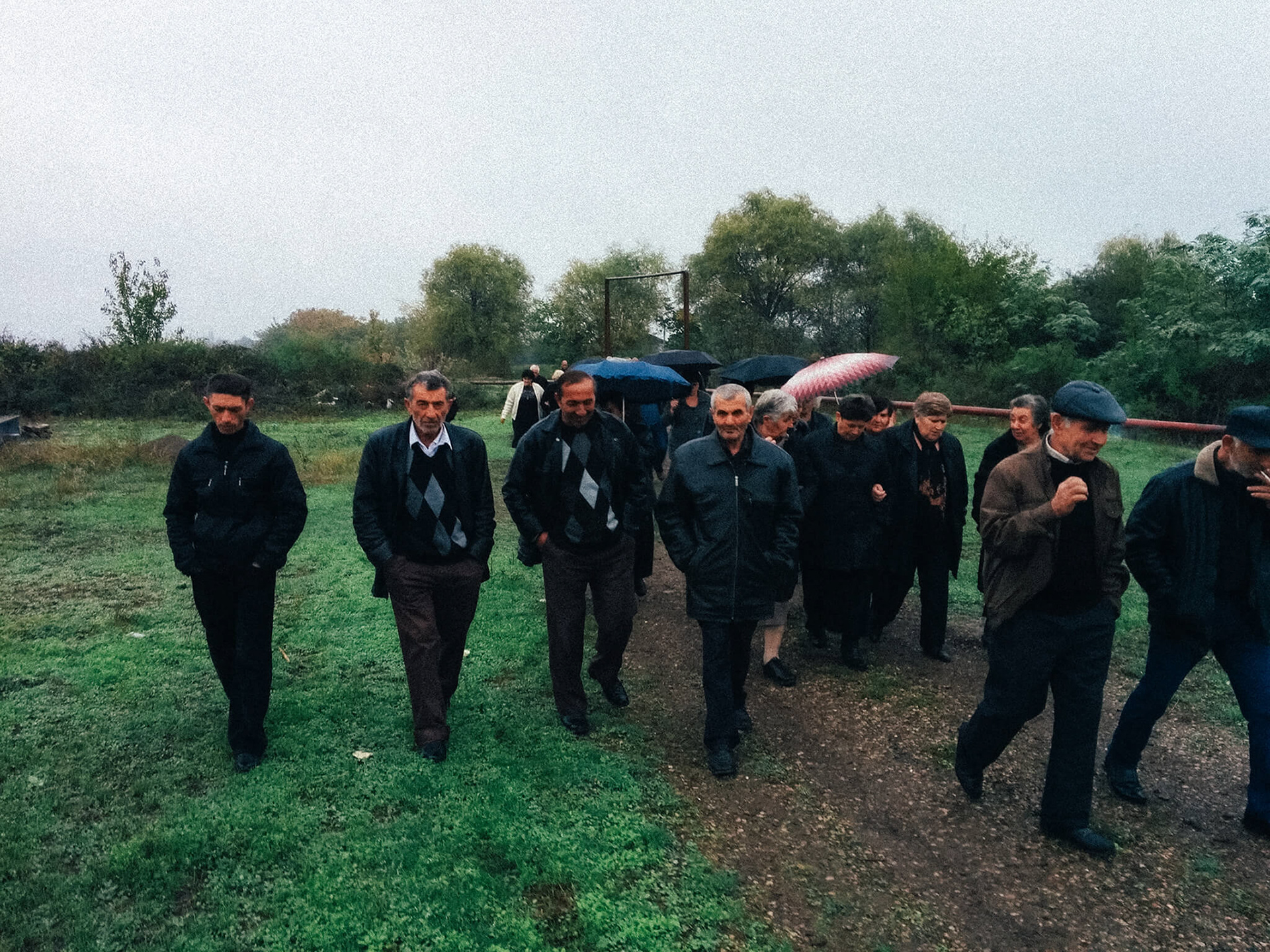
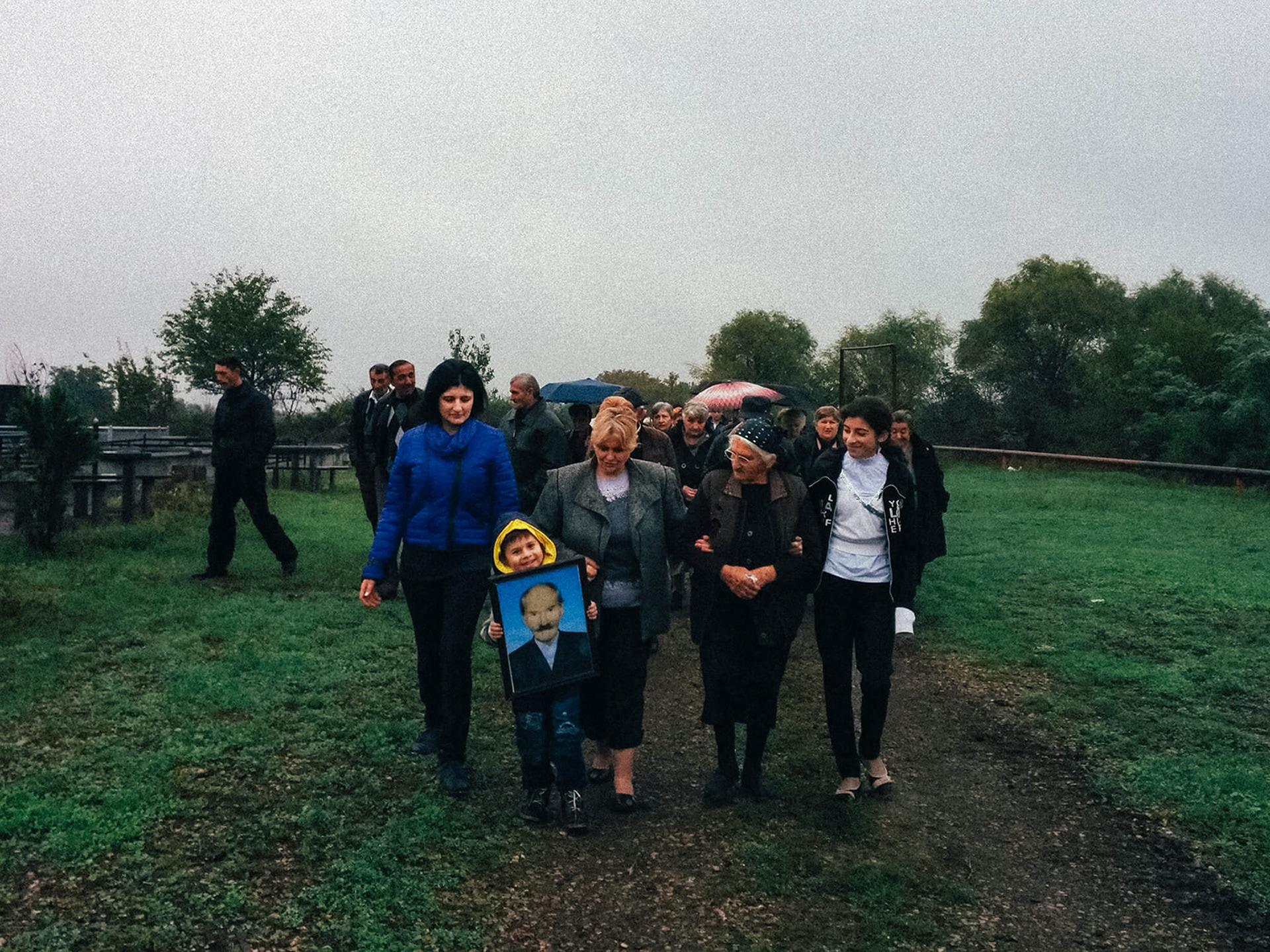
That morning, we headed to the graveyard under a heavy, overcast sky. The air felt thick. Little Vaghinak, named after our great-grandfather, walked ahead of us, clutching a framed photo of him. He insisted on carrying it himself, his small hands gripping it tightly. His bright, carefree smile stood in stark contrast to the somber mood around him. For him, it was just a walk with family, unaware of the meaning behind the gathering or the weight of the day that hung in the air, much like the clouds above.
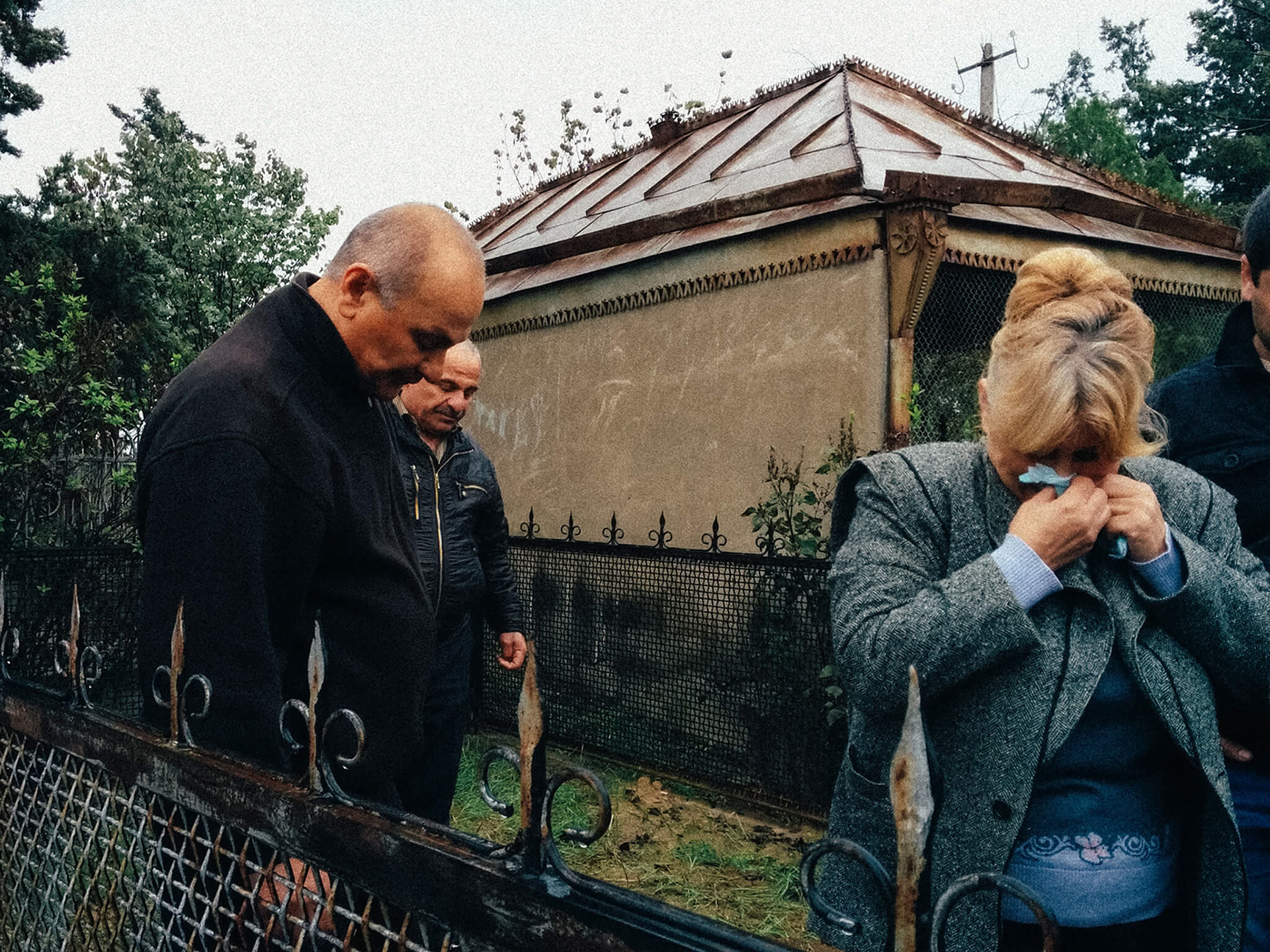
Great-grandfather Vaghinak’s children: sons Samvel and Manvel, and daughter Svetlana
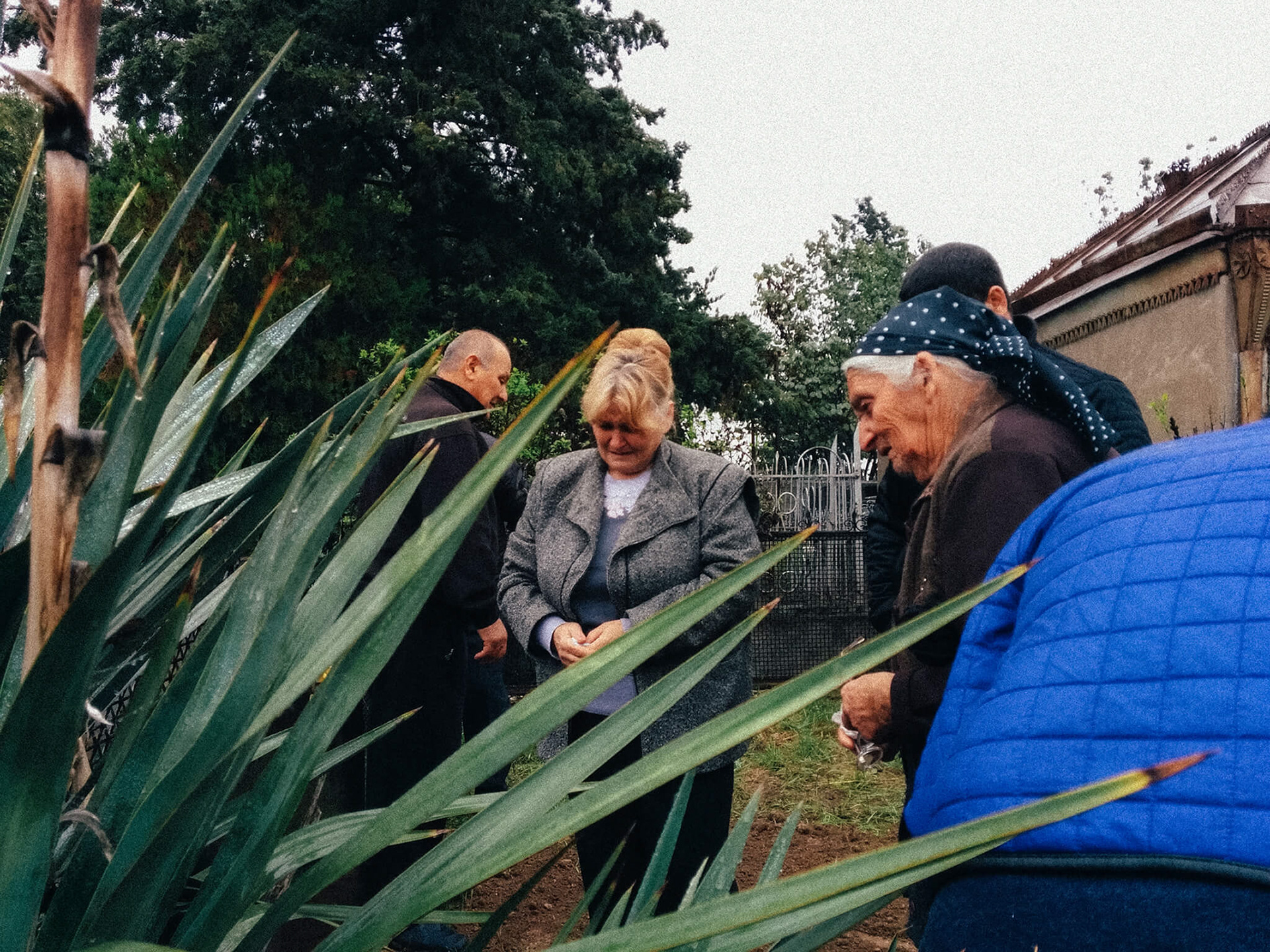
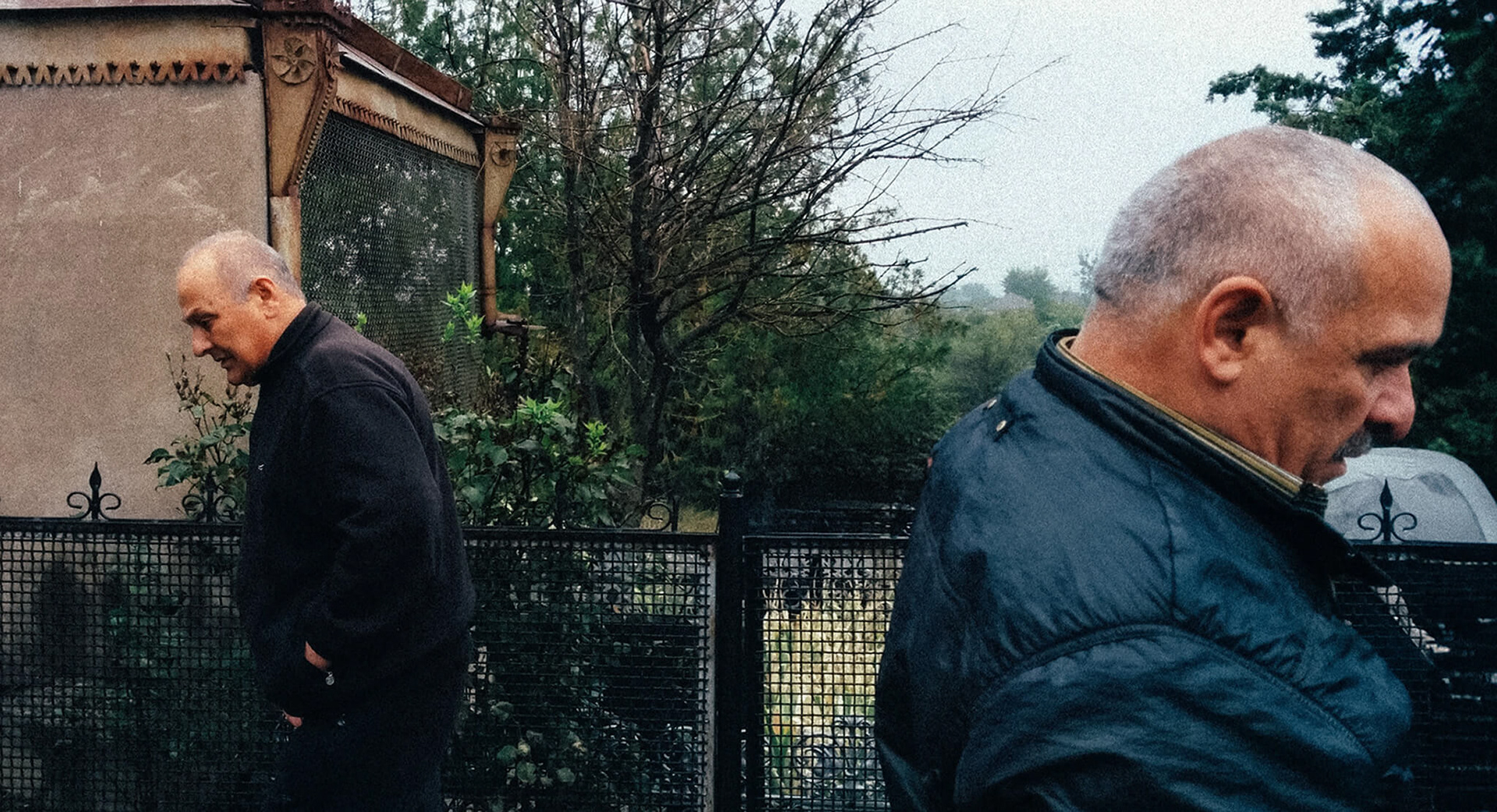
Great-grandfather Vaghinak’s sons, Samvel and Manvel
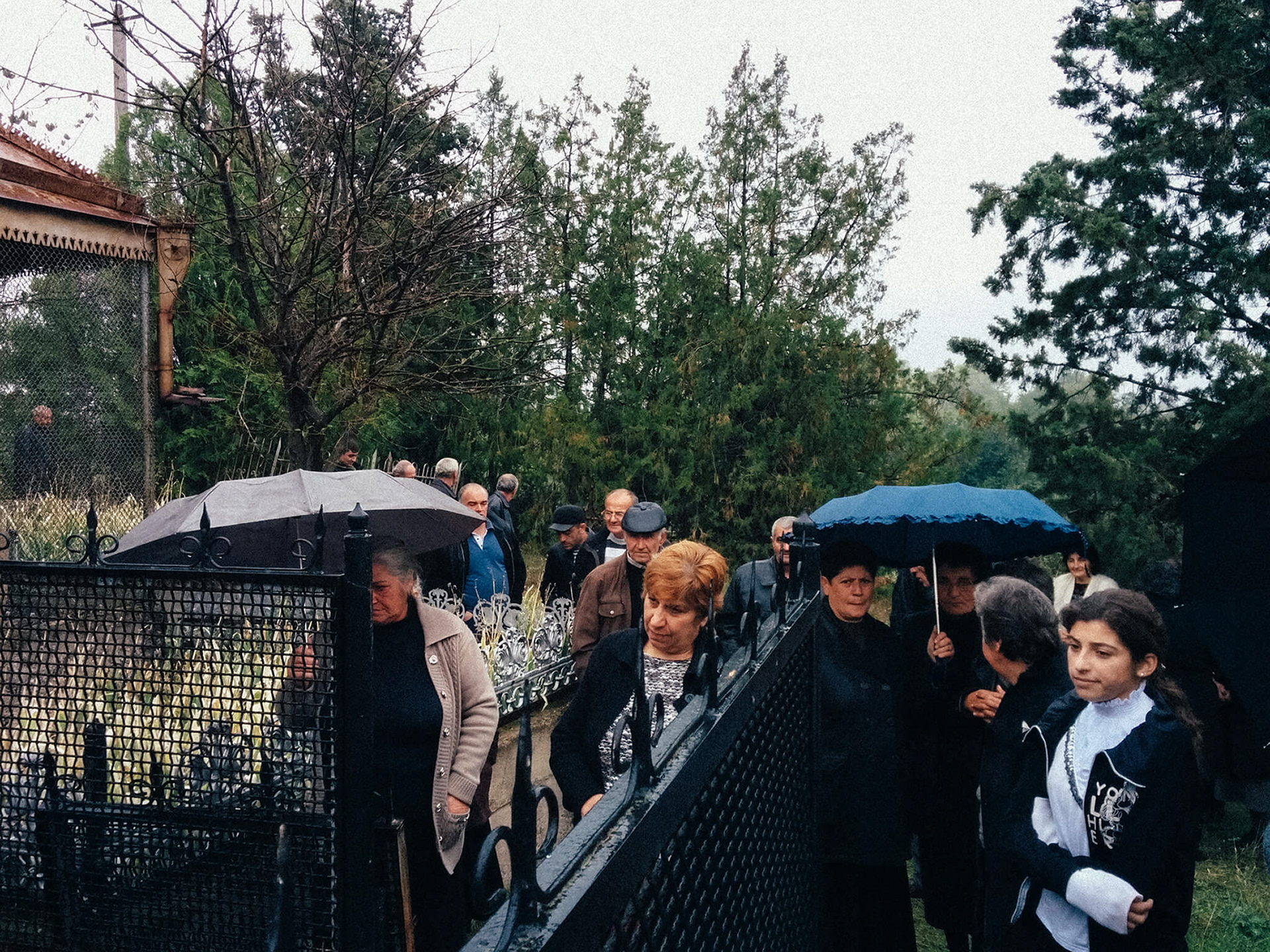
Uncle Samvel, Eldest Son
Uncle Samvel's relationship with his father was shaped by unspoken hopes. My great-grandfather always wished that Samvel would return from abroad to finish the second floor, closing one chapter and beginning another. Yet, the house remains incomplete, its upper level exposed to the changing seasons - a silent reminder of dreams and plans that were never fully realized.
Uncle Samvel's relationship with his father was shaped by unspoken hopes. My great-grandfather always wished that Samvel would return from abroad to finish the second floor, closing one chapter and beginning another. Yet, the house remains incomplete, its upper level exposed to the changing seasons - a silent reminder of dreams and plans that were never fully realized.
The preparation of the ritual dish Shila (Շիլա)
After we returned from the graveyard, the men gathered in the yard, quietly talking as a fire crackled in the background. They set about preparing Shila, a dish that men in our village have always made. It is a ritual dish, a way to honor this day through cooking and remembering.
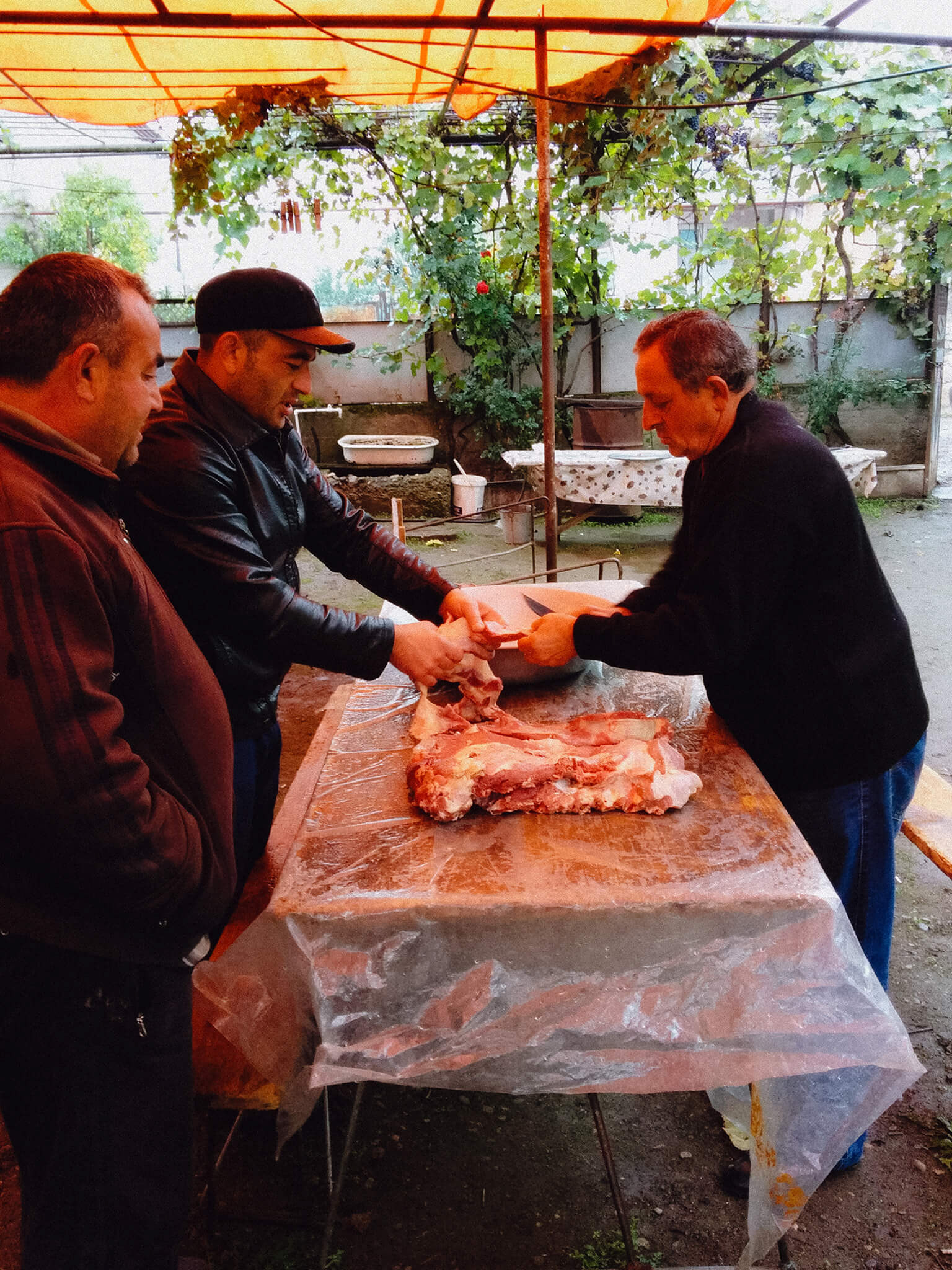
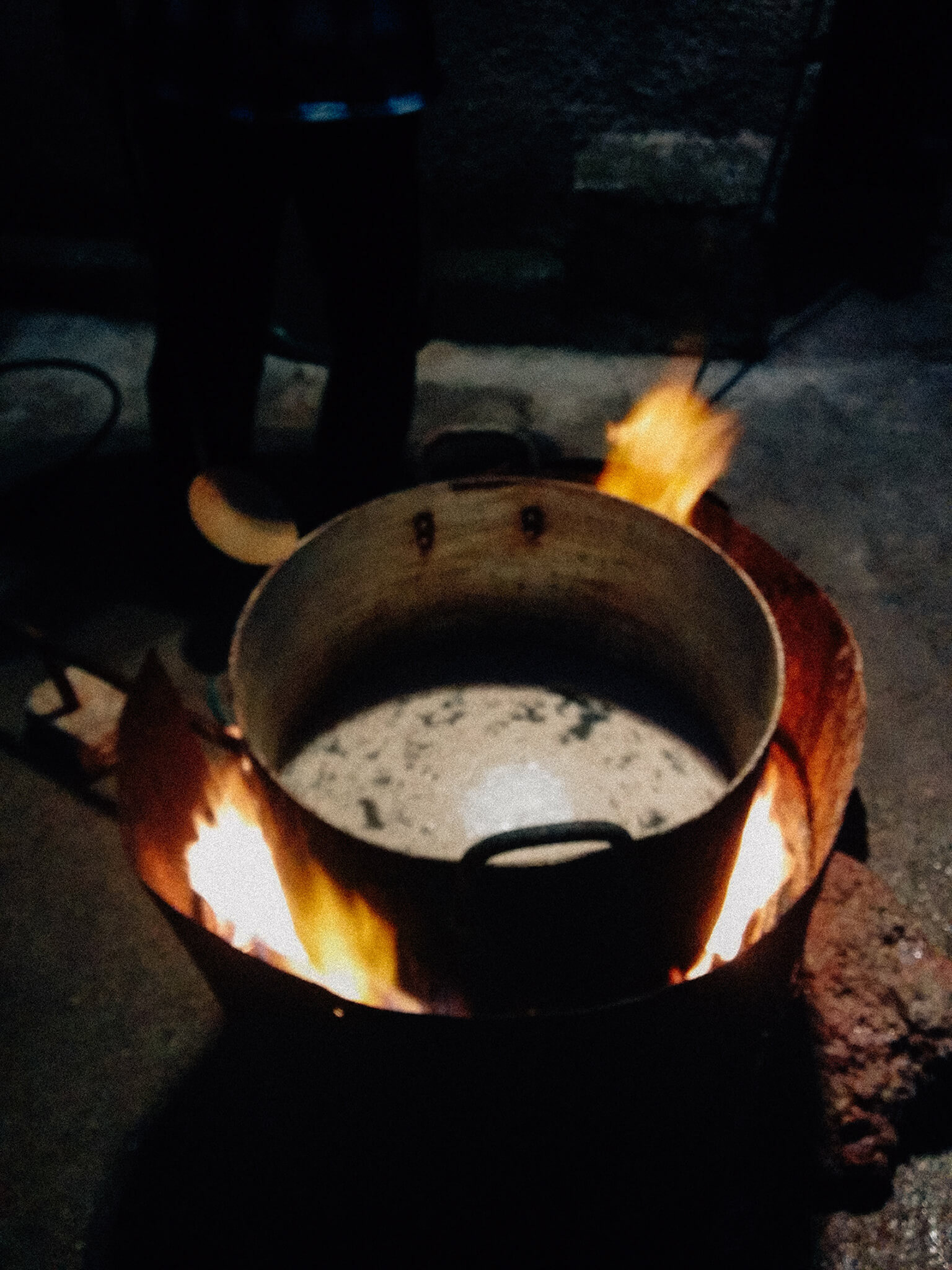
Little Maryam curiously watching, trying to figure out what all the men are so busy with.
I had never tasted Shila the way the Shulavertsi-the people of Krasnoe-prepare it. So I waited, sitting quietly with a distant relative, while a cat lounged inside my great-grandmother's old stone stove. The smell of slow-cooked meat and spices filled the air, and everyone-family, friends, and even the cat-waited patiently for the meal to be ready.
The feast
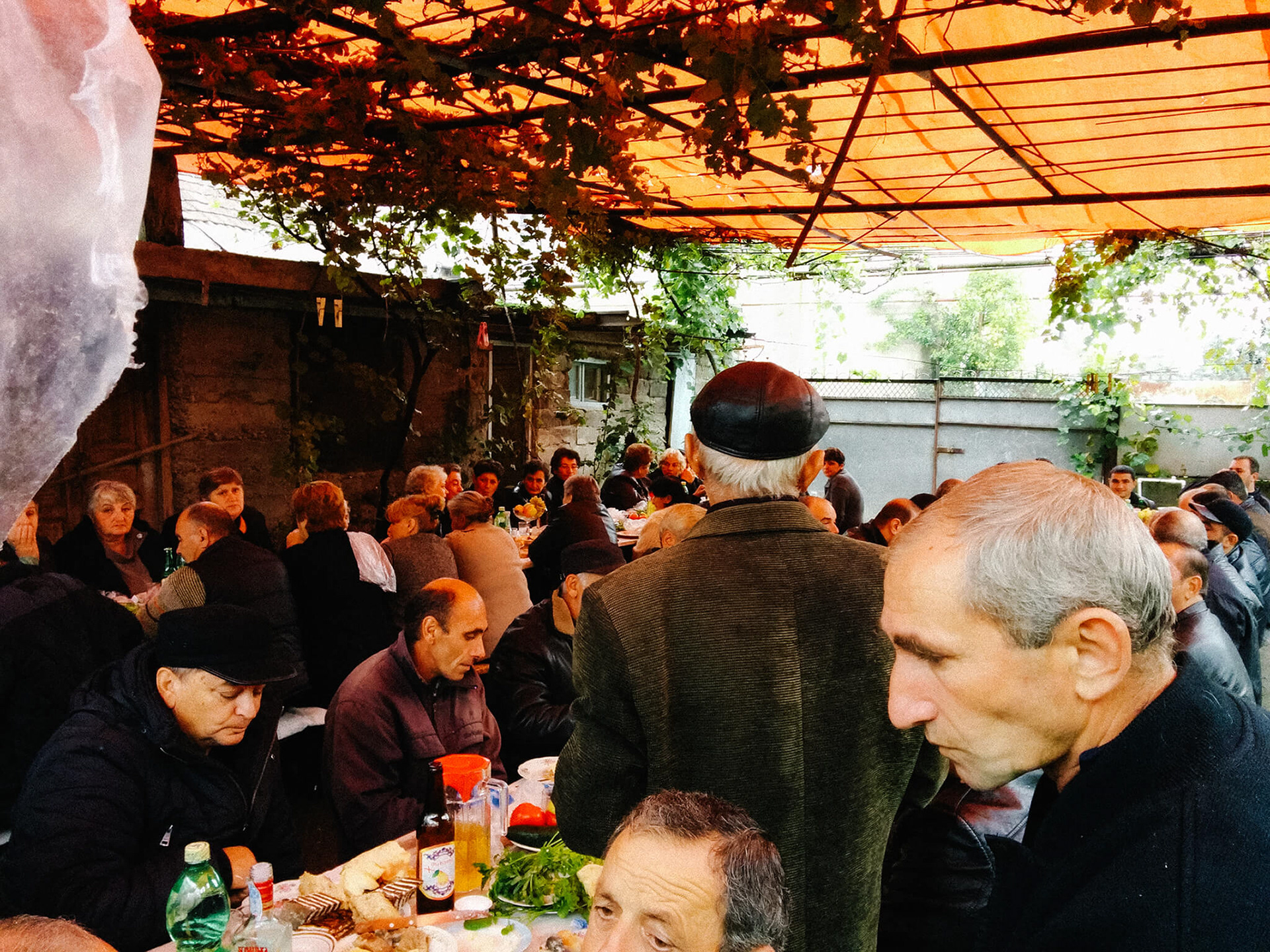
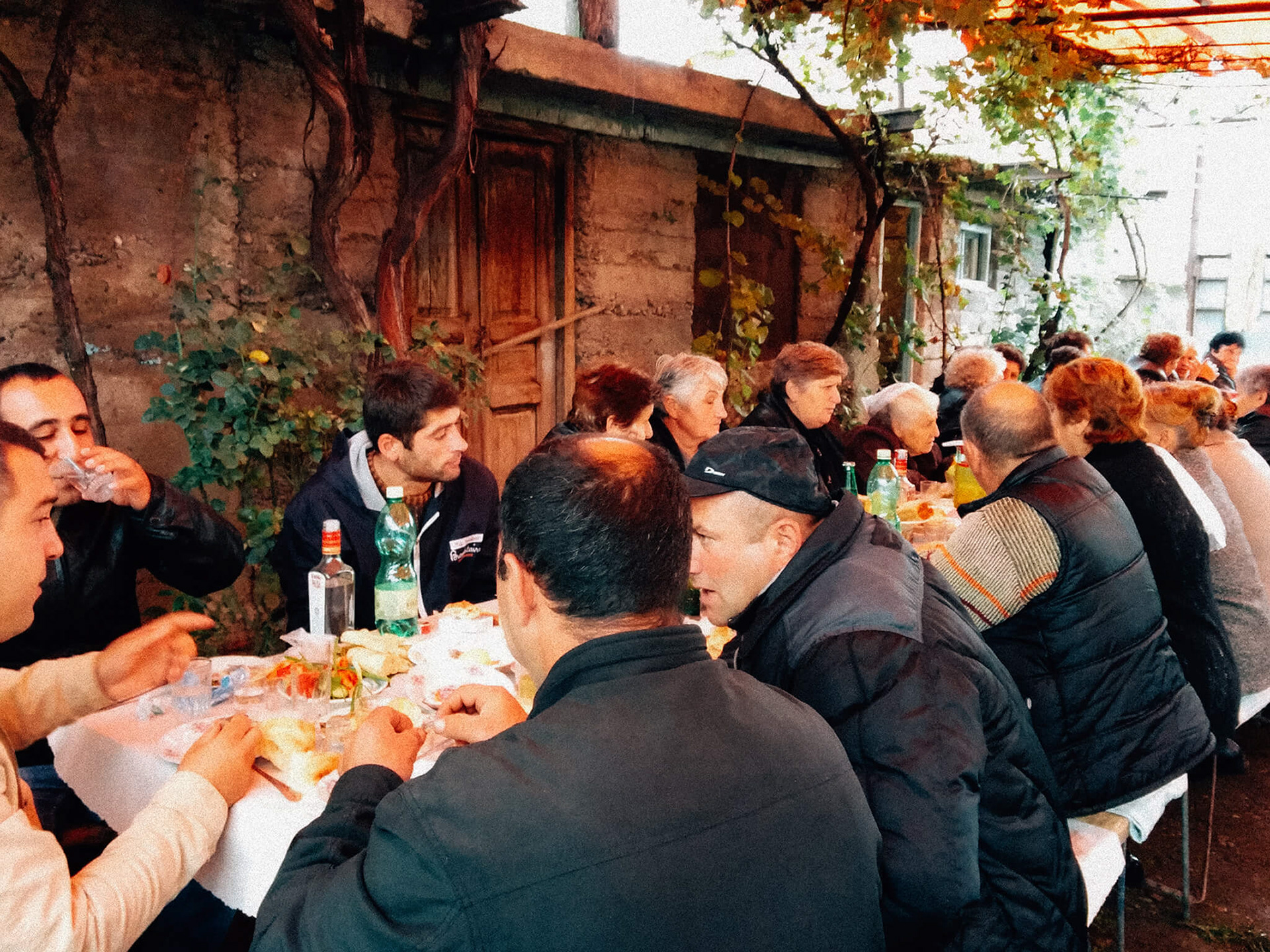
The feast was a quick and curious affair. The Tamada, the one who leads the toasts, raised his glass every few minutes, his voice rising above the soft hum of conversation. For someone like me, used to longer and more measured toasts, it felt odd to stand and drink so frequently. But despite all the clinking and chatting, the event passed swiftly. After about two hours, as if prompted by some unspoken signal, everyone stood up and left without fuss. It began and ended before I fully settled into its rhythm.
Uncle Manvel and his granddaughter Maryam after the feast
The Adventures of little Maryam
Although life in the village was unfamiliar to me, Maryam’s curiosity made it feel closer. She watched her uncle and grandfather tie up the lamb she had chased earlier, blew out her brother’s birthday candles, played with cousins she had never met, woke up to find a hedgehog wandering in the yard, and tried to climb the unfinished second floor with me. She even took a turn at the car’s steering wheel while her father guided her. Through her eyes, the village felt new, and I tried to capture those moments with my camera.
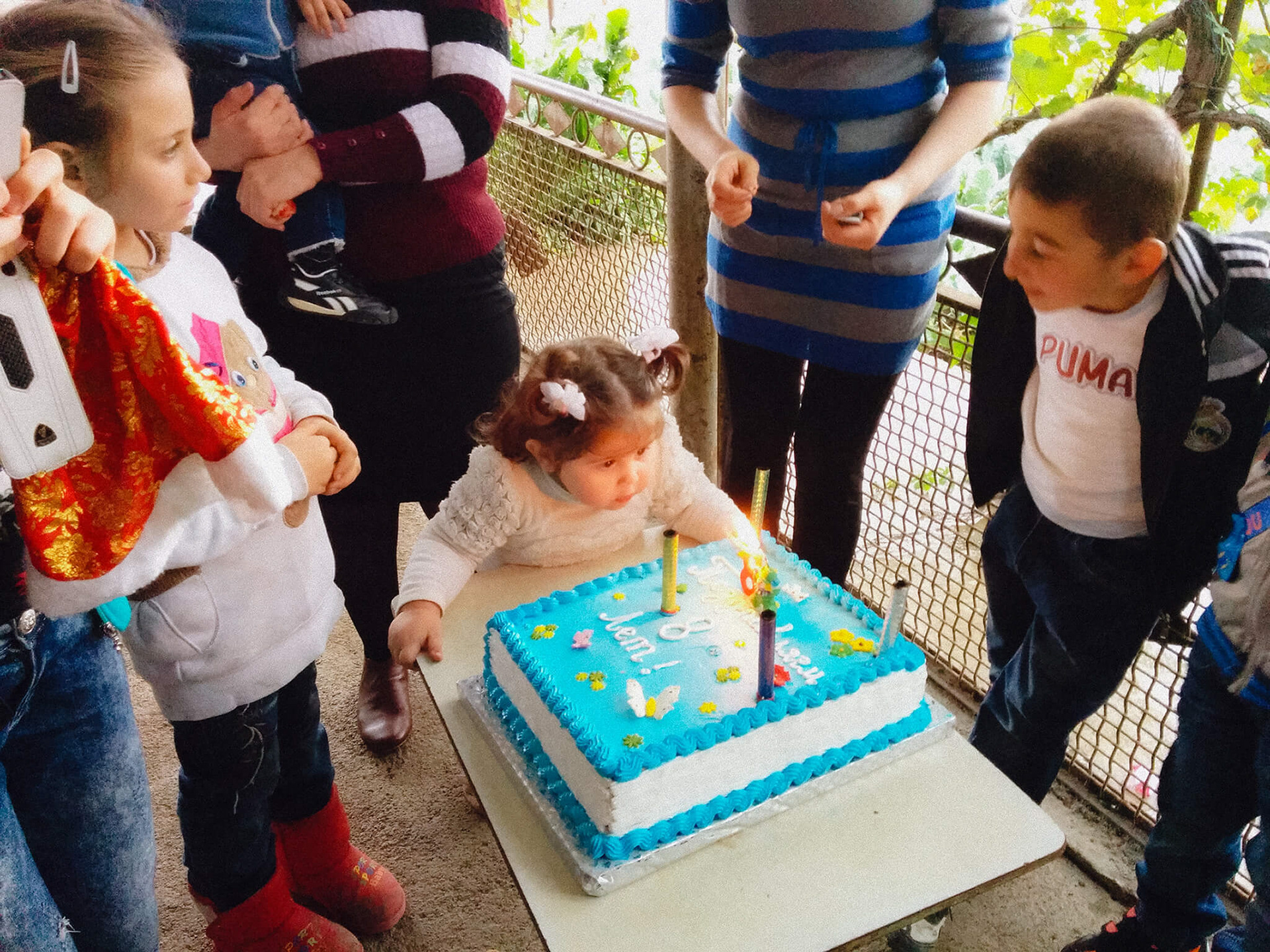
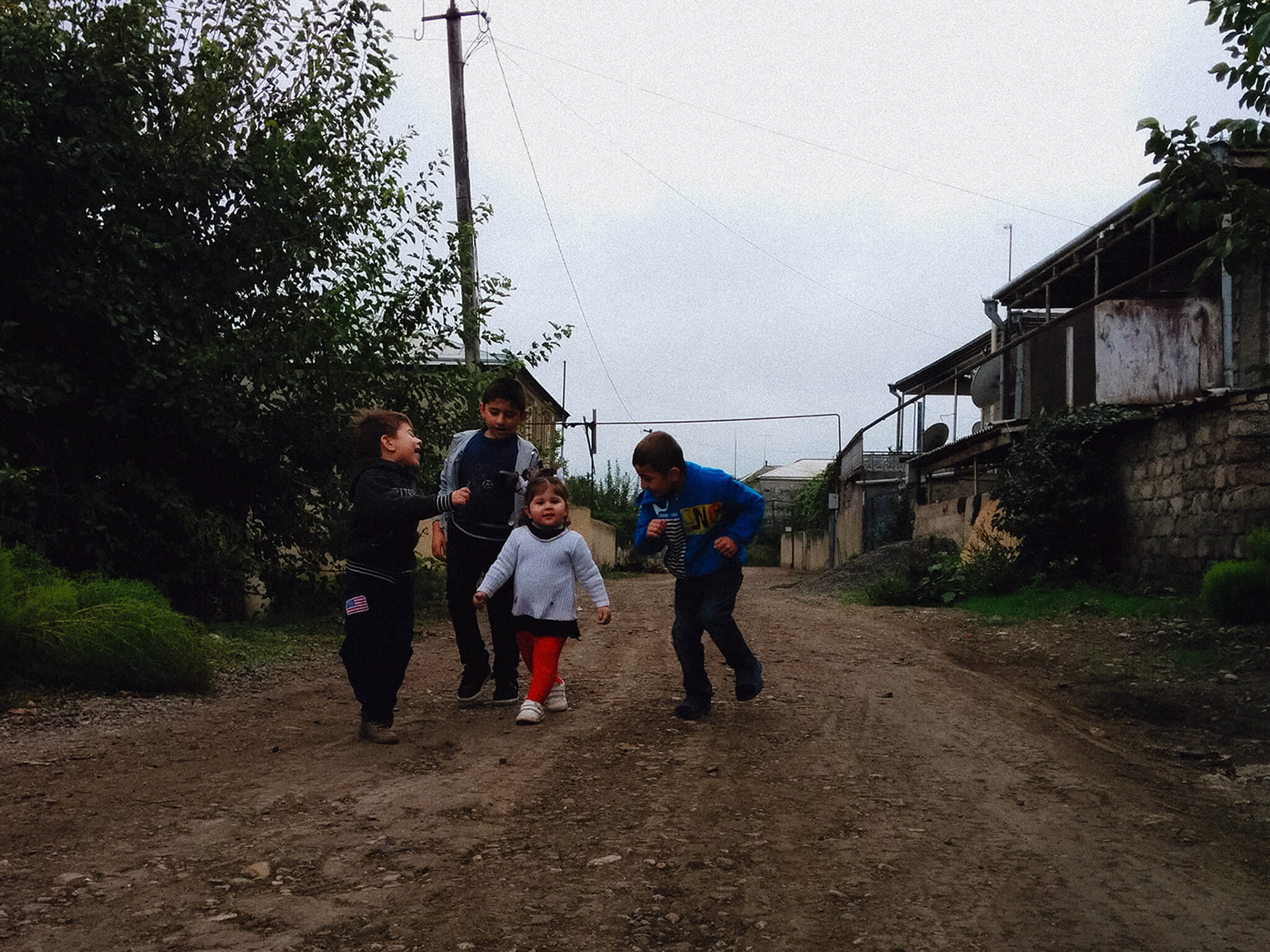
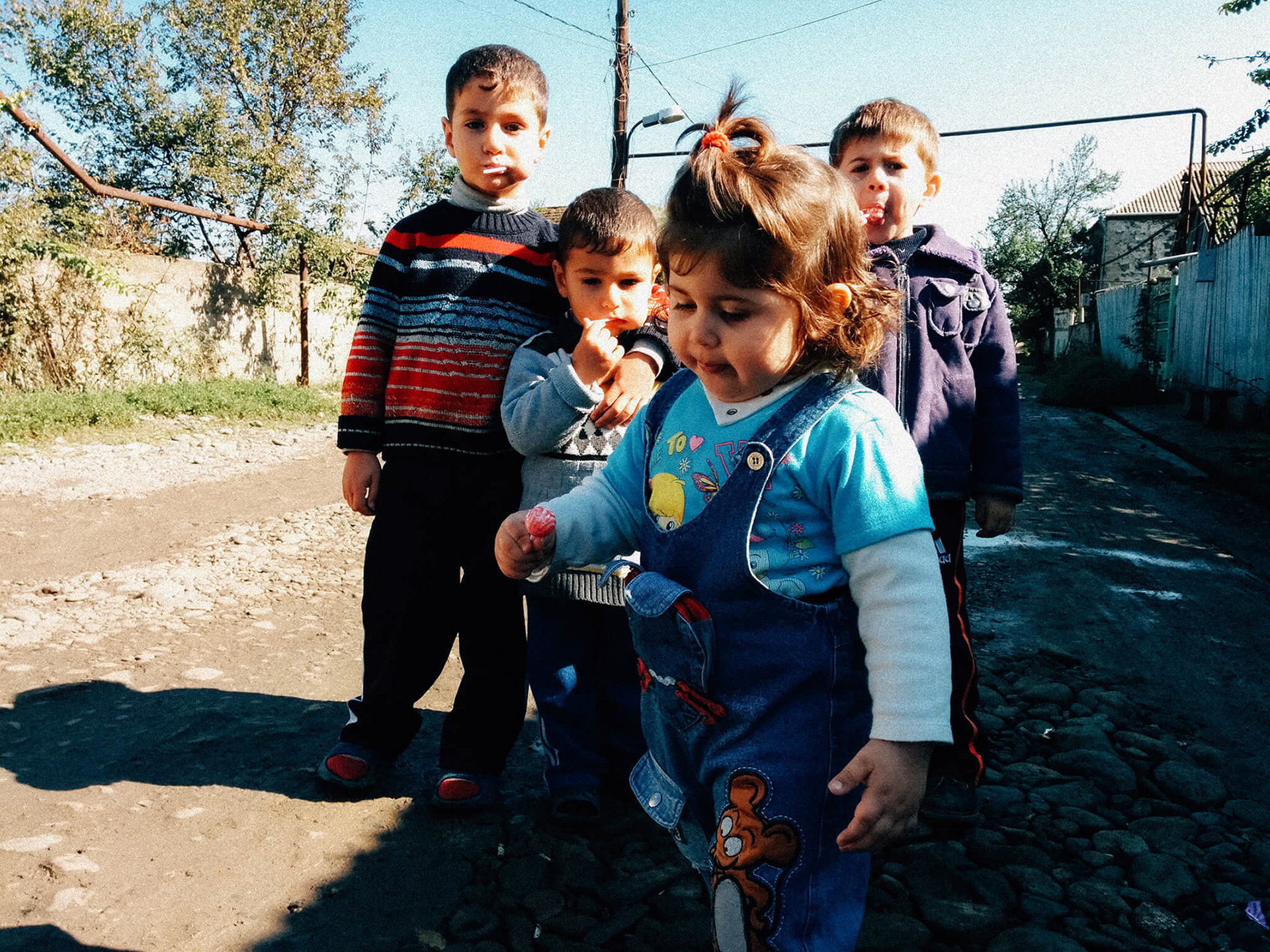
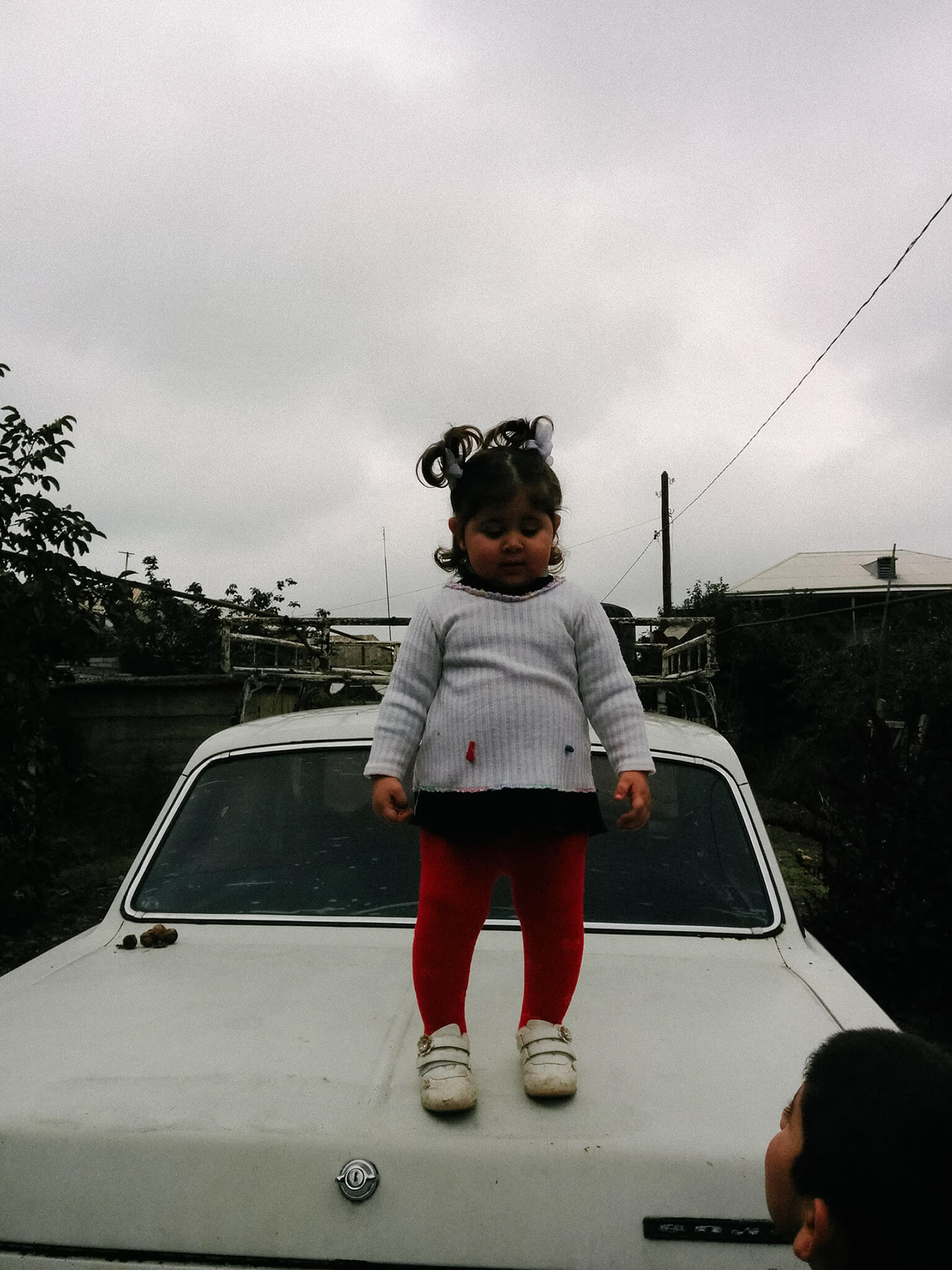
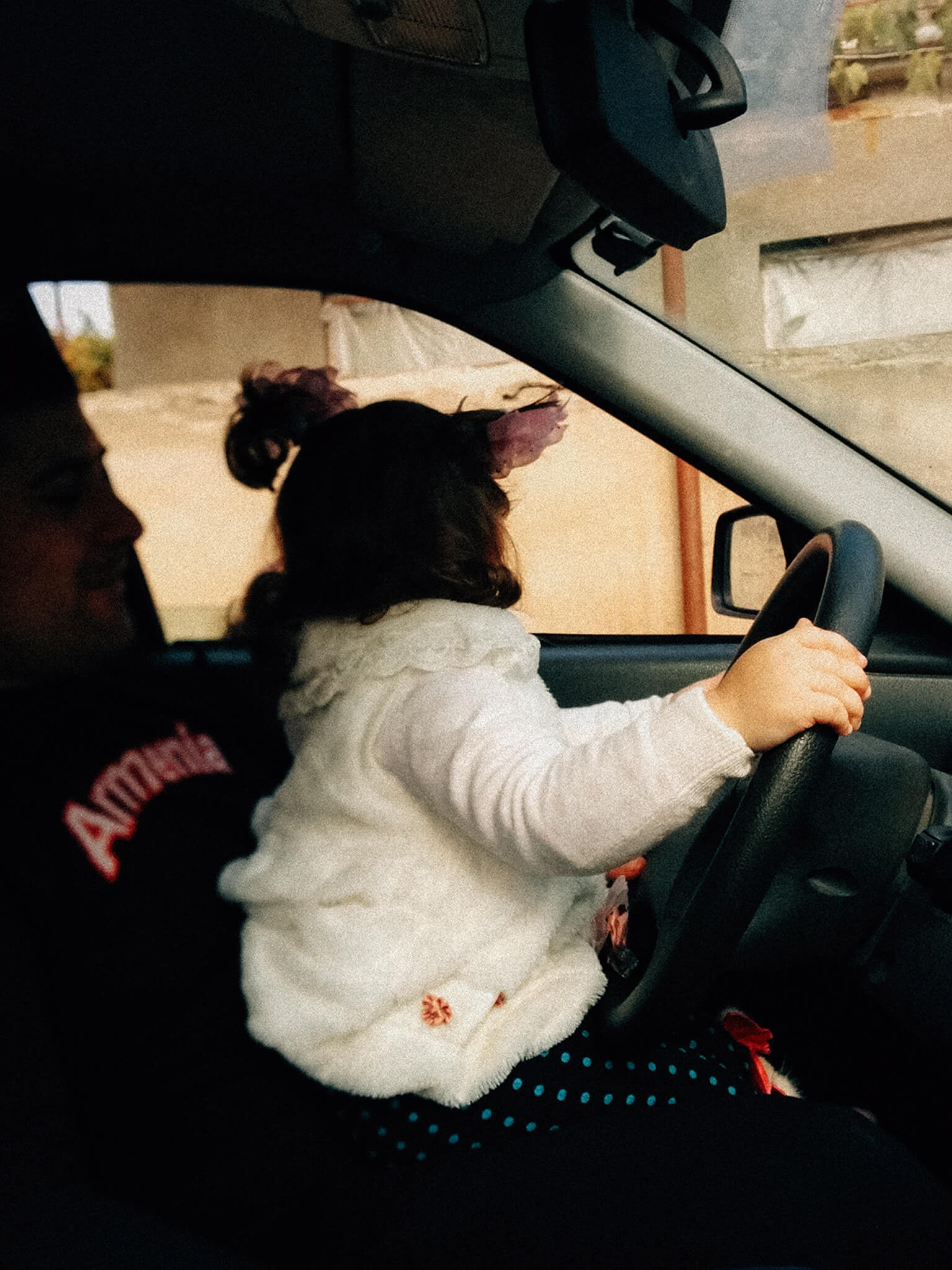
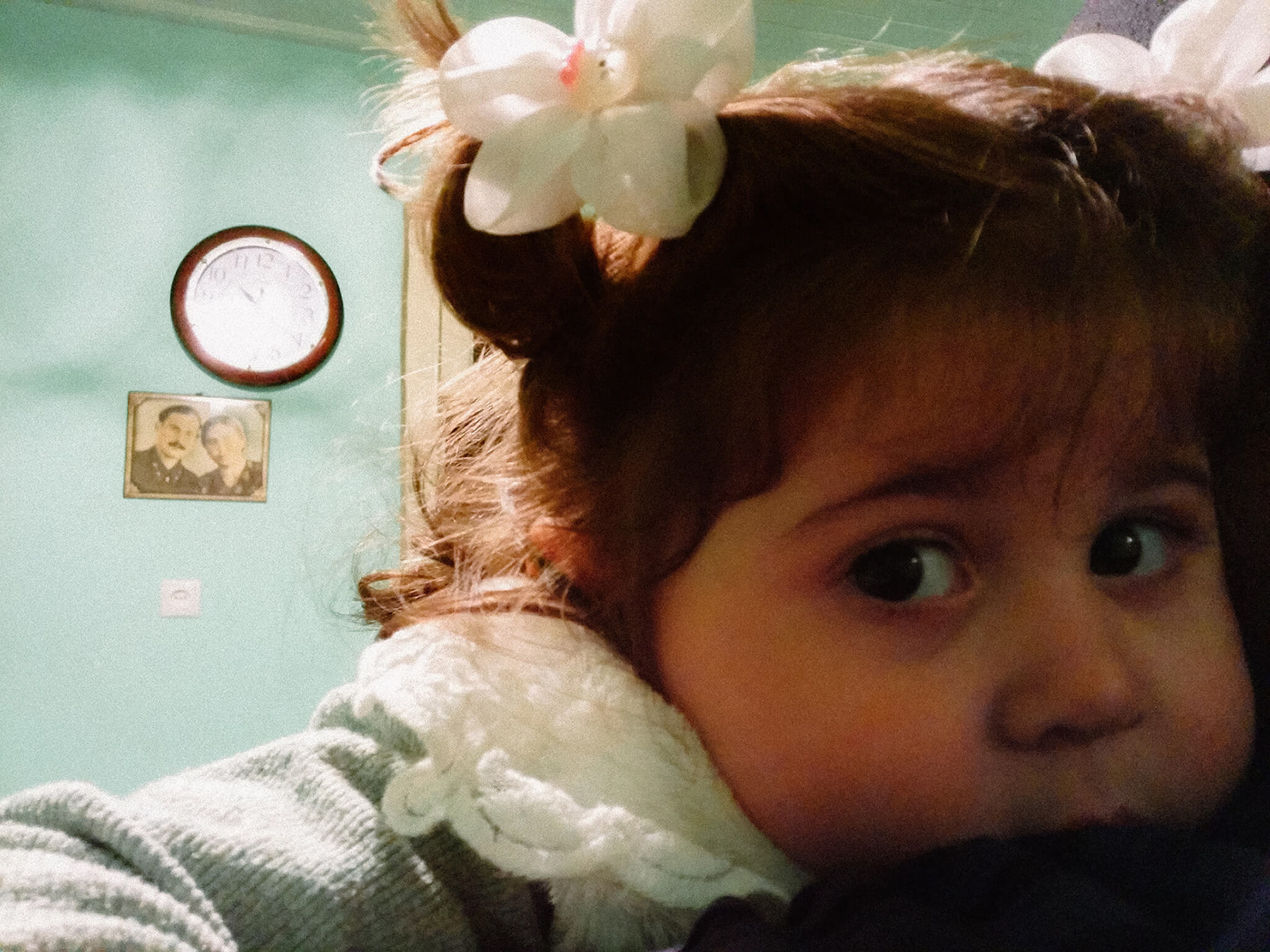
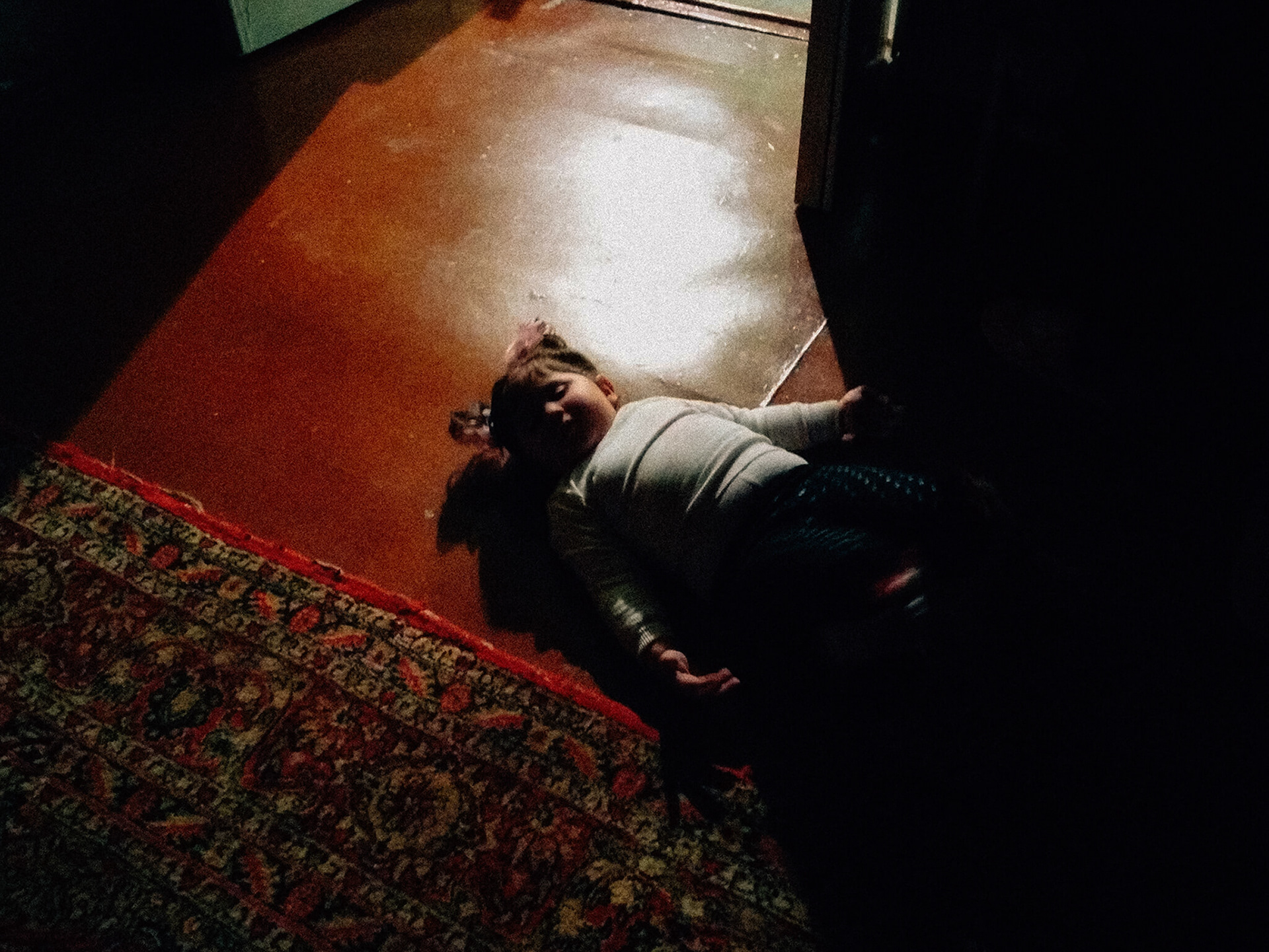
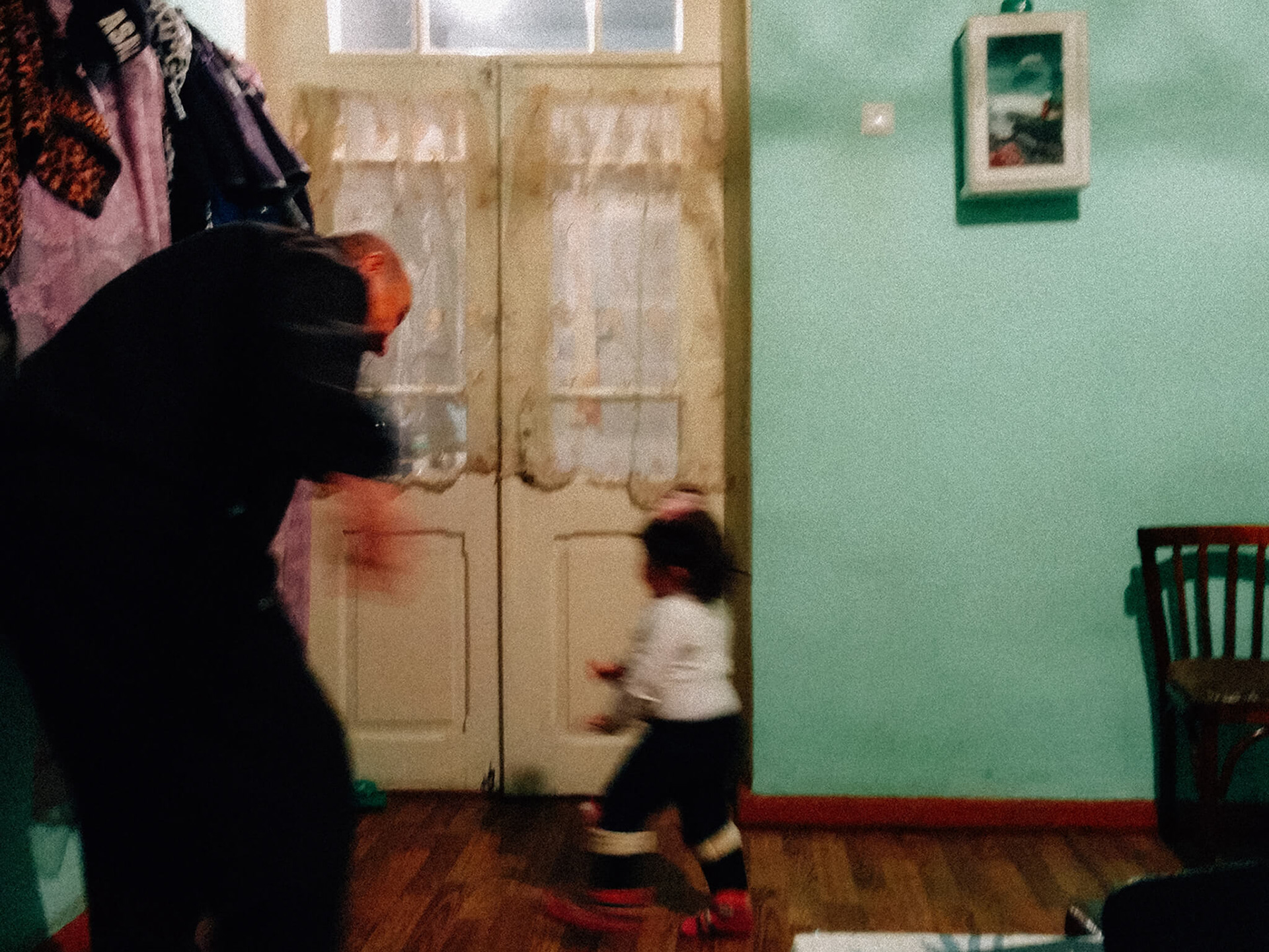
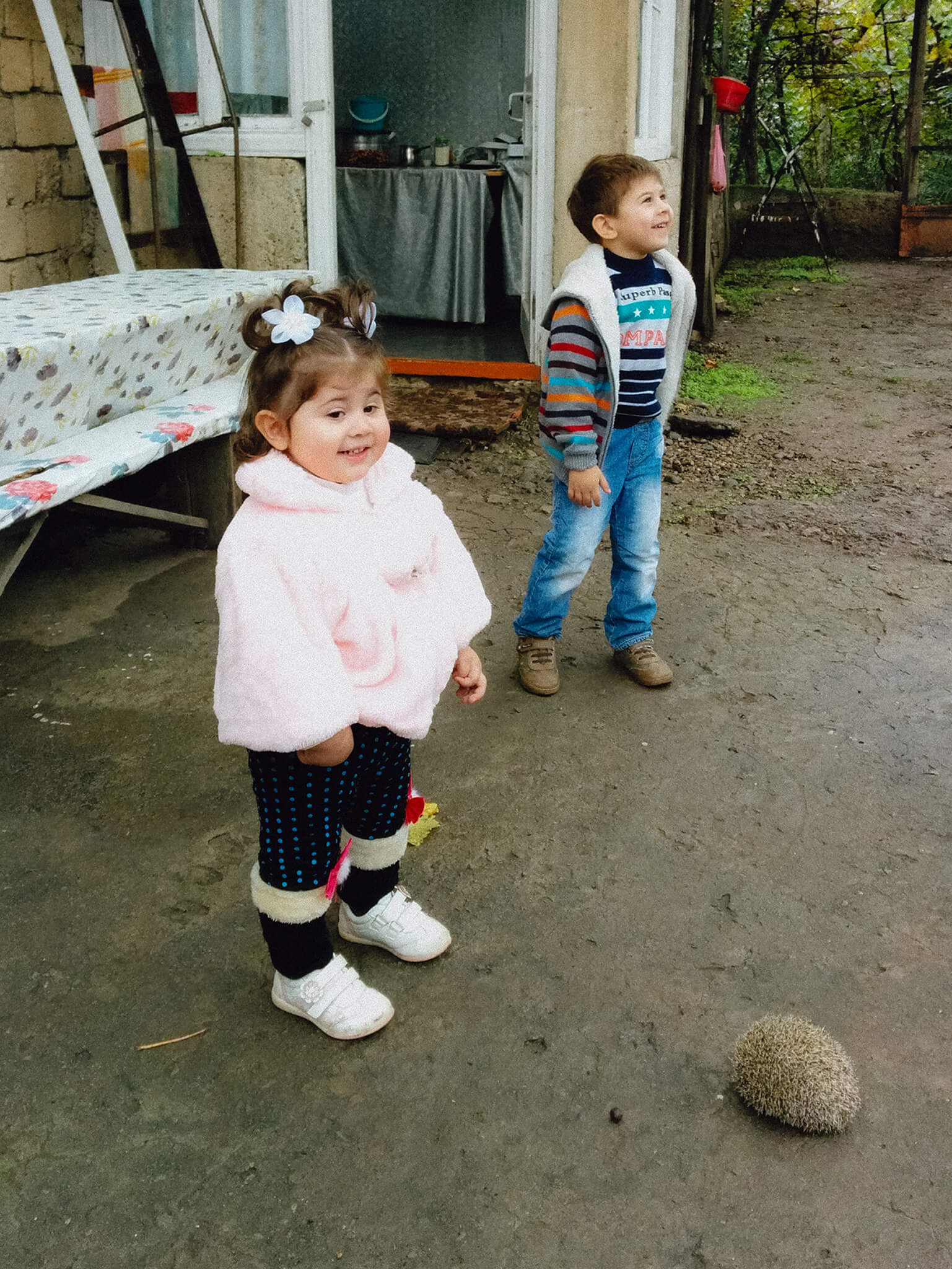
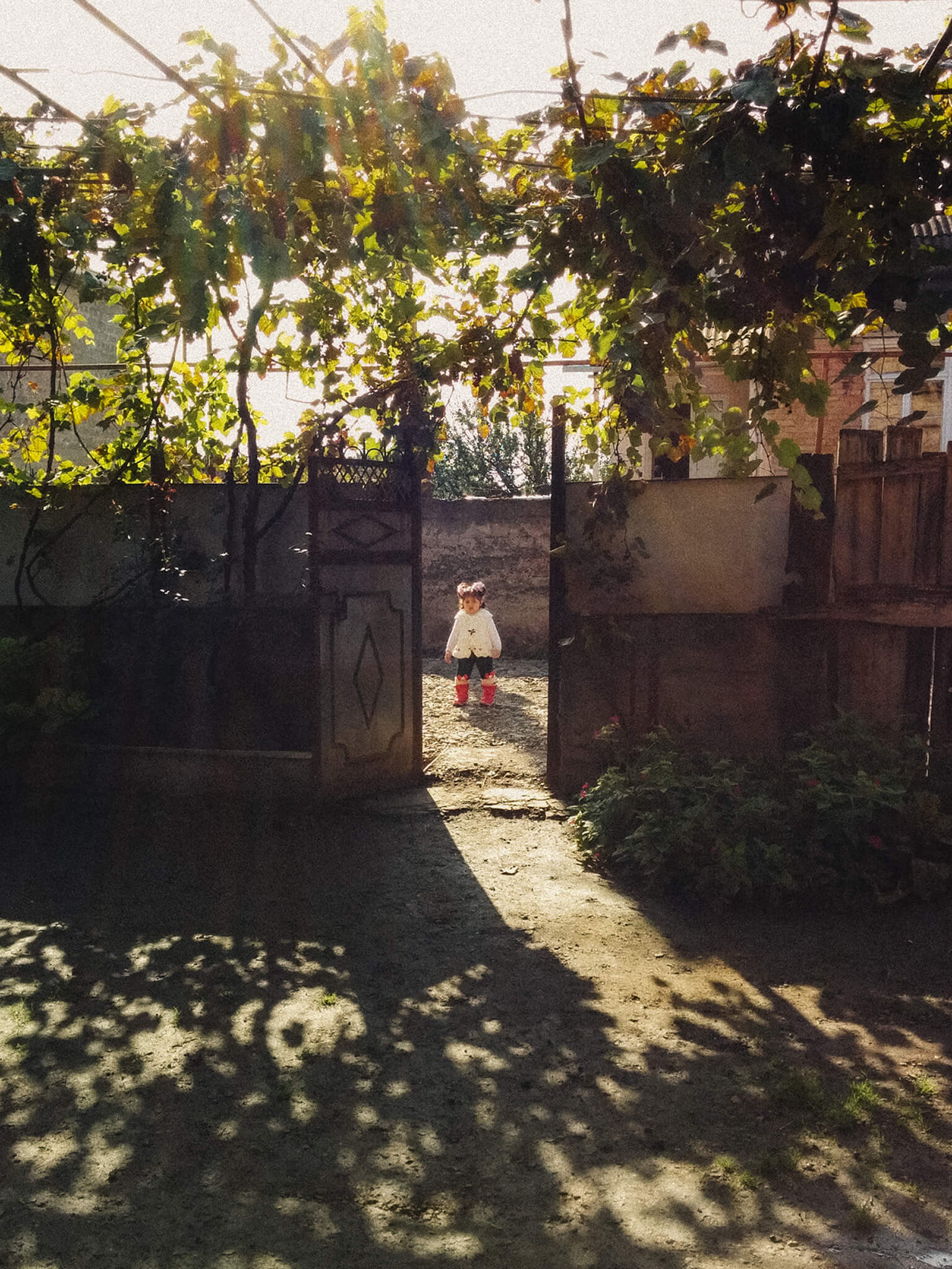
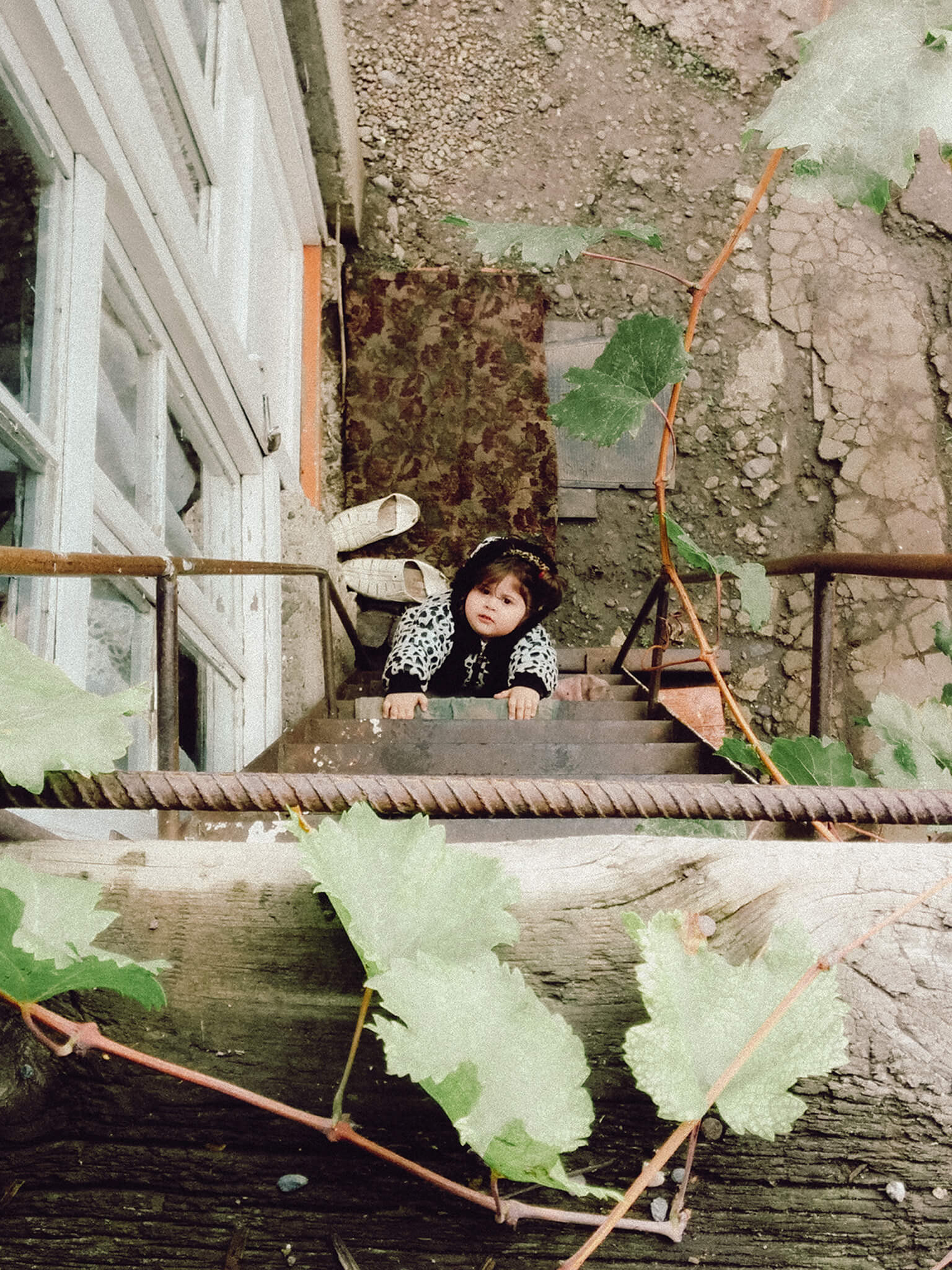
While reflecting and writing this story at the end of 2024, I keep thinking about those days in Krasnoe a decade ago, and about all the family members tied to that home. They are scattered around the world, including me here in Germany, absorbed in their own lives and returning only occasionally. Still, I cannot help but hope that maybe, just maybe, it will be Maryam who finally finishes the second floor.
